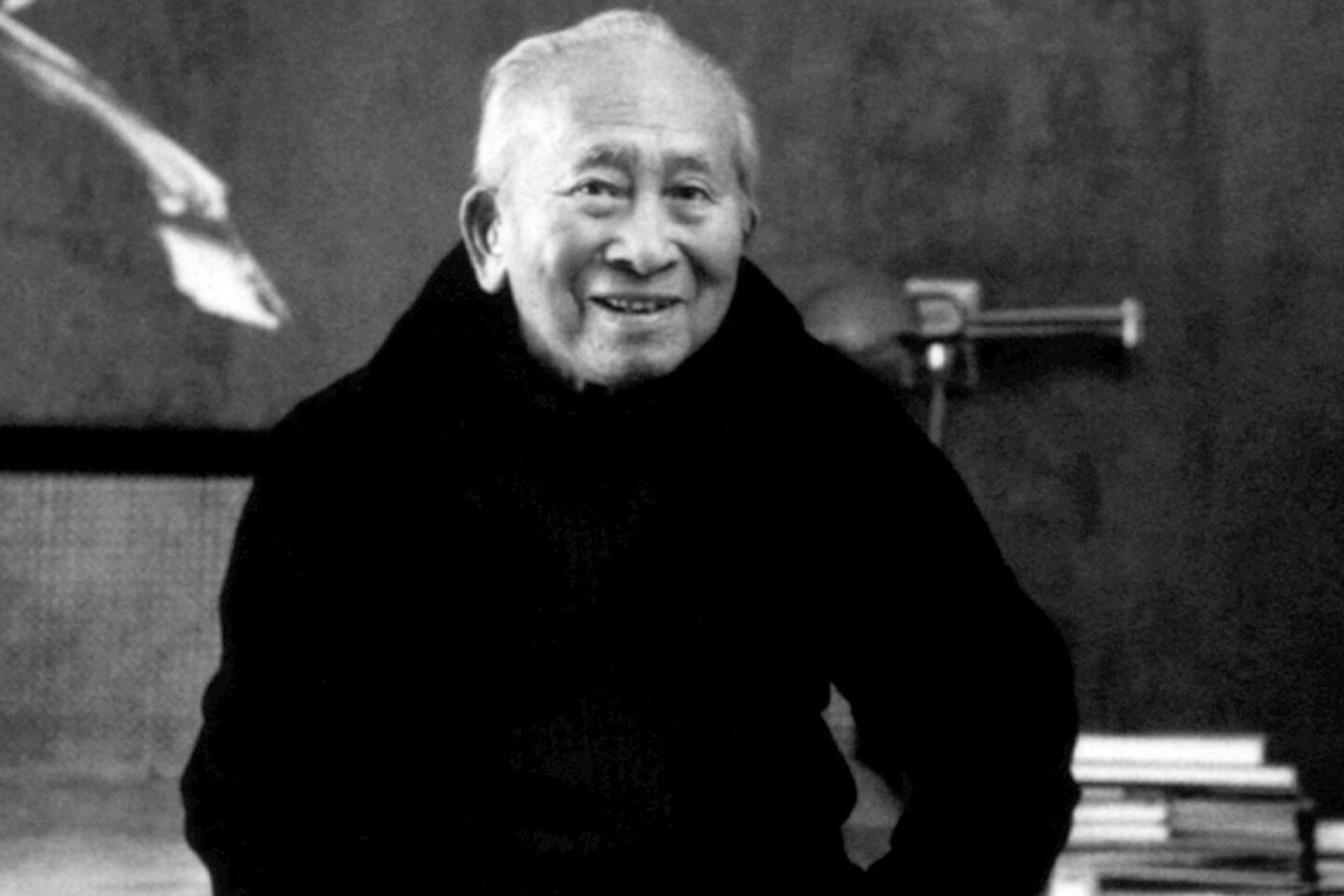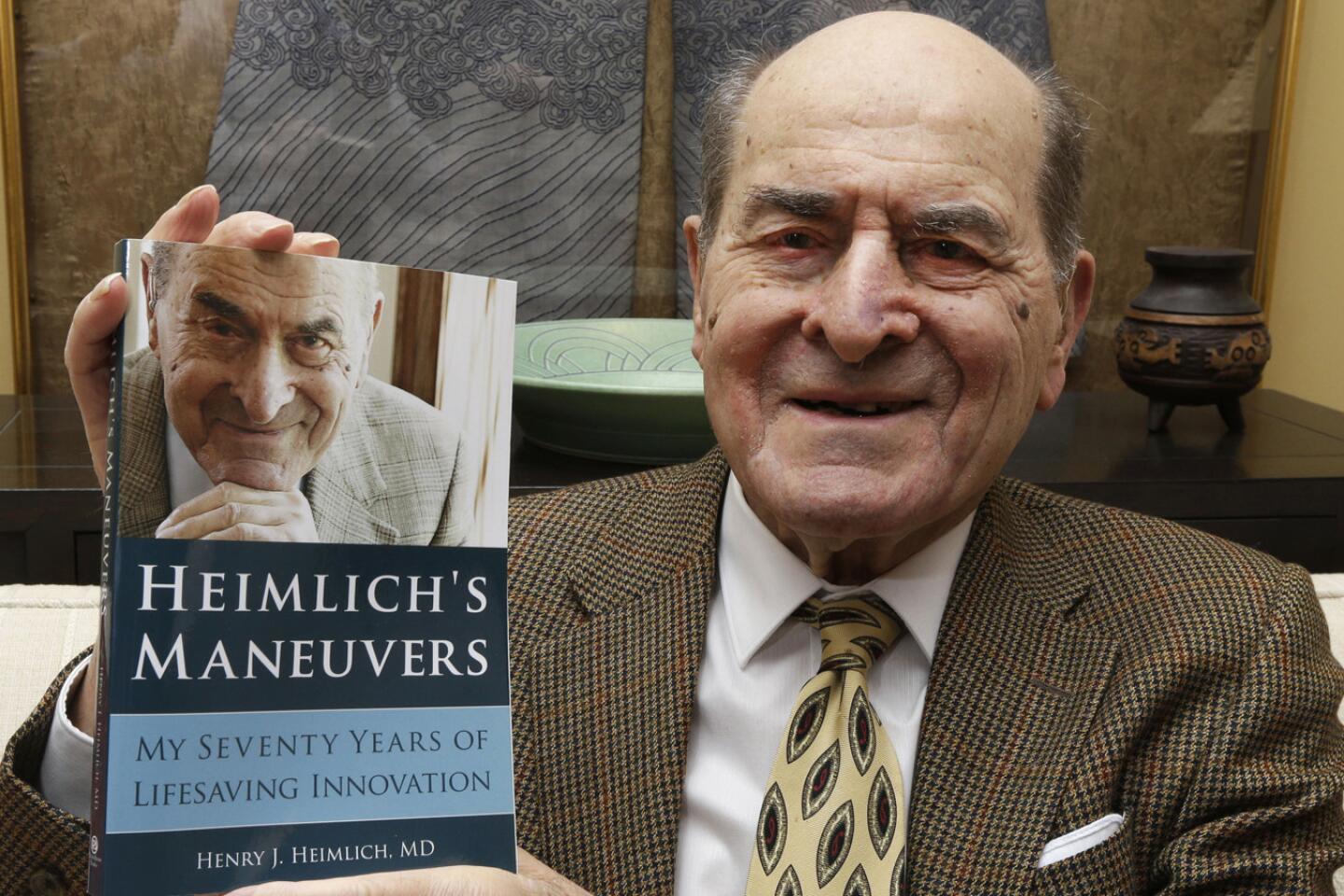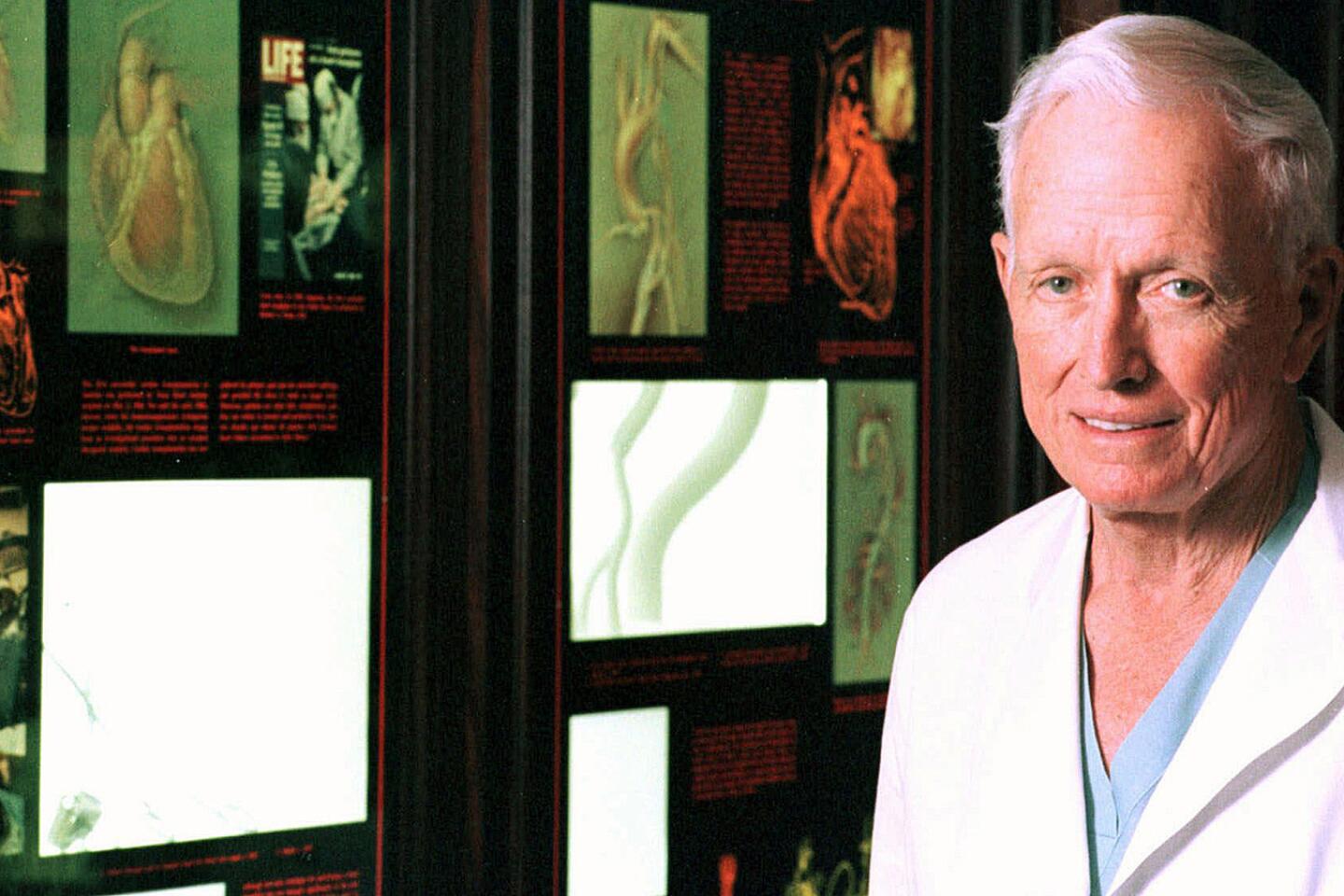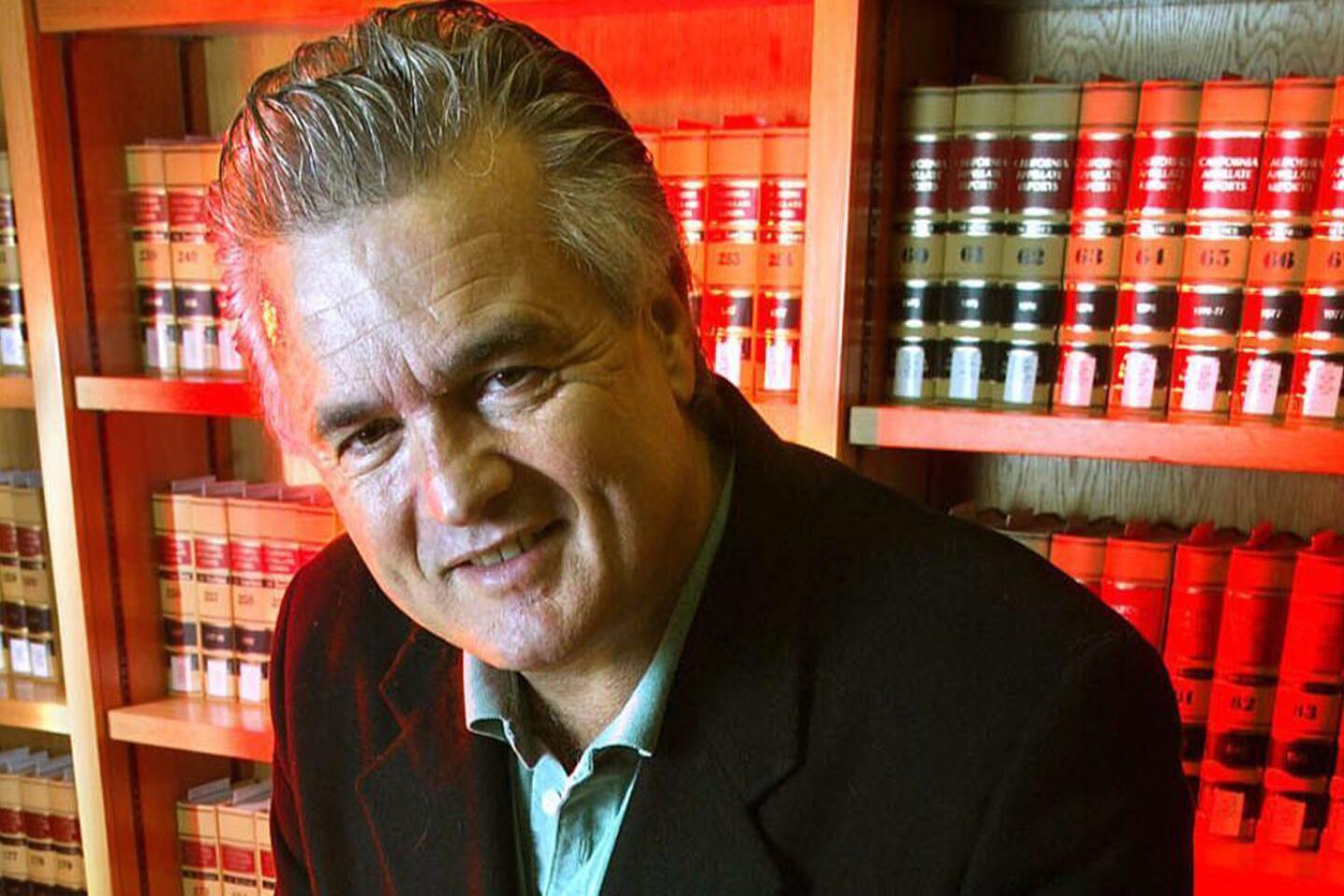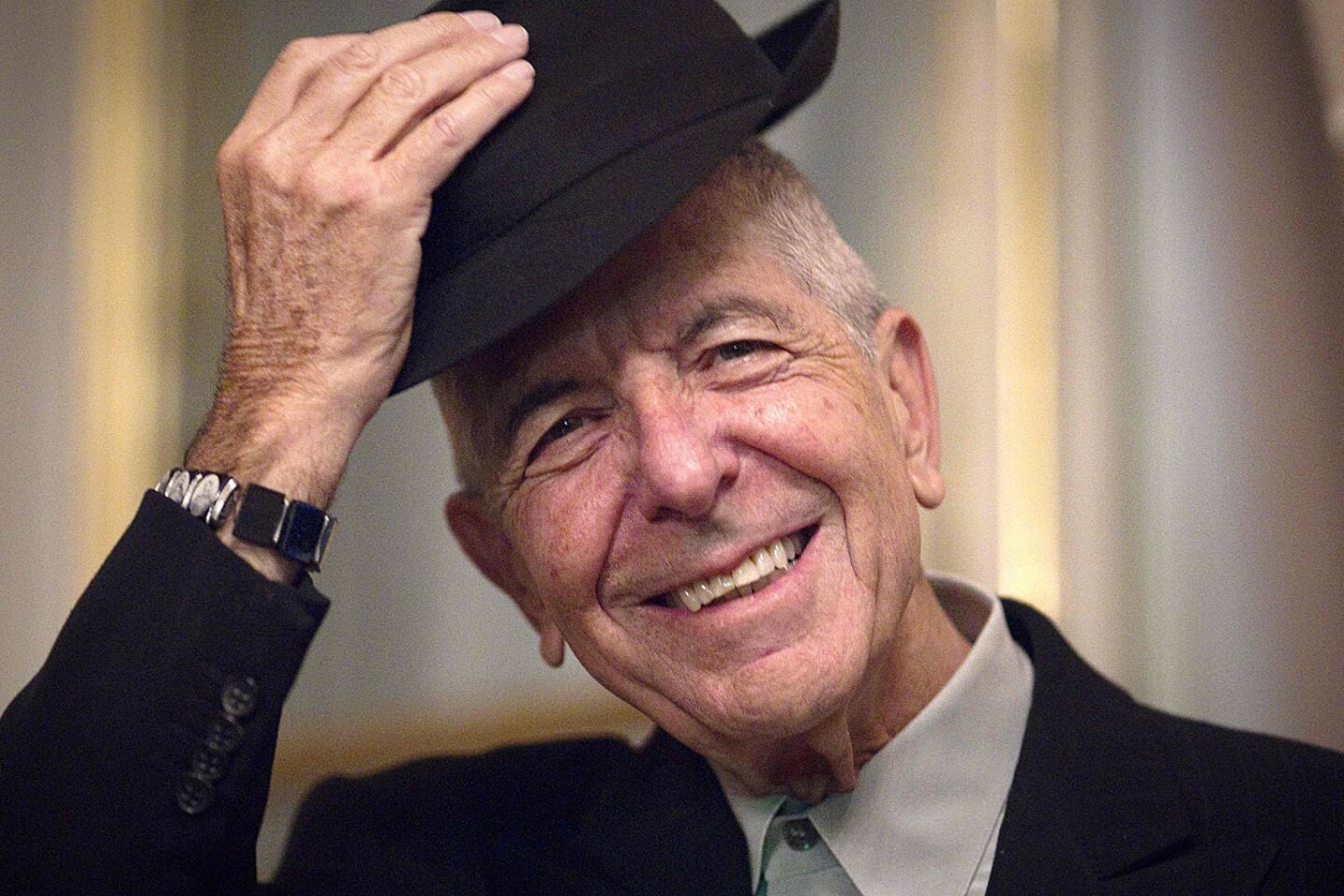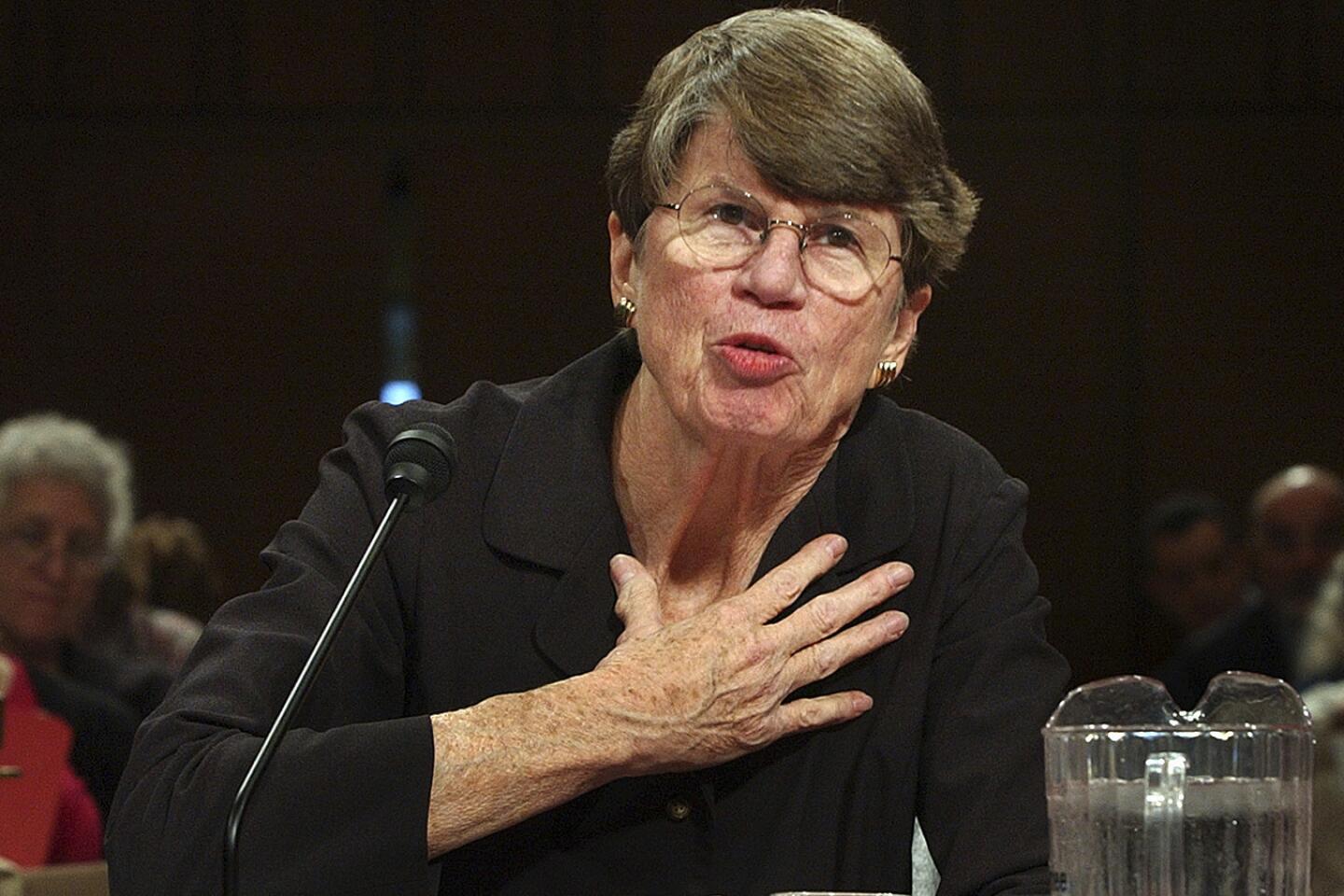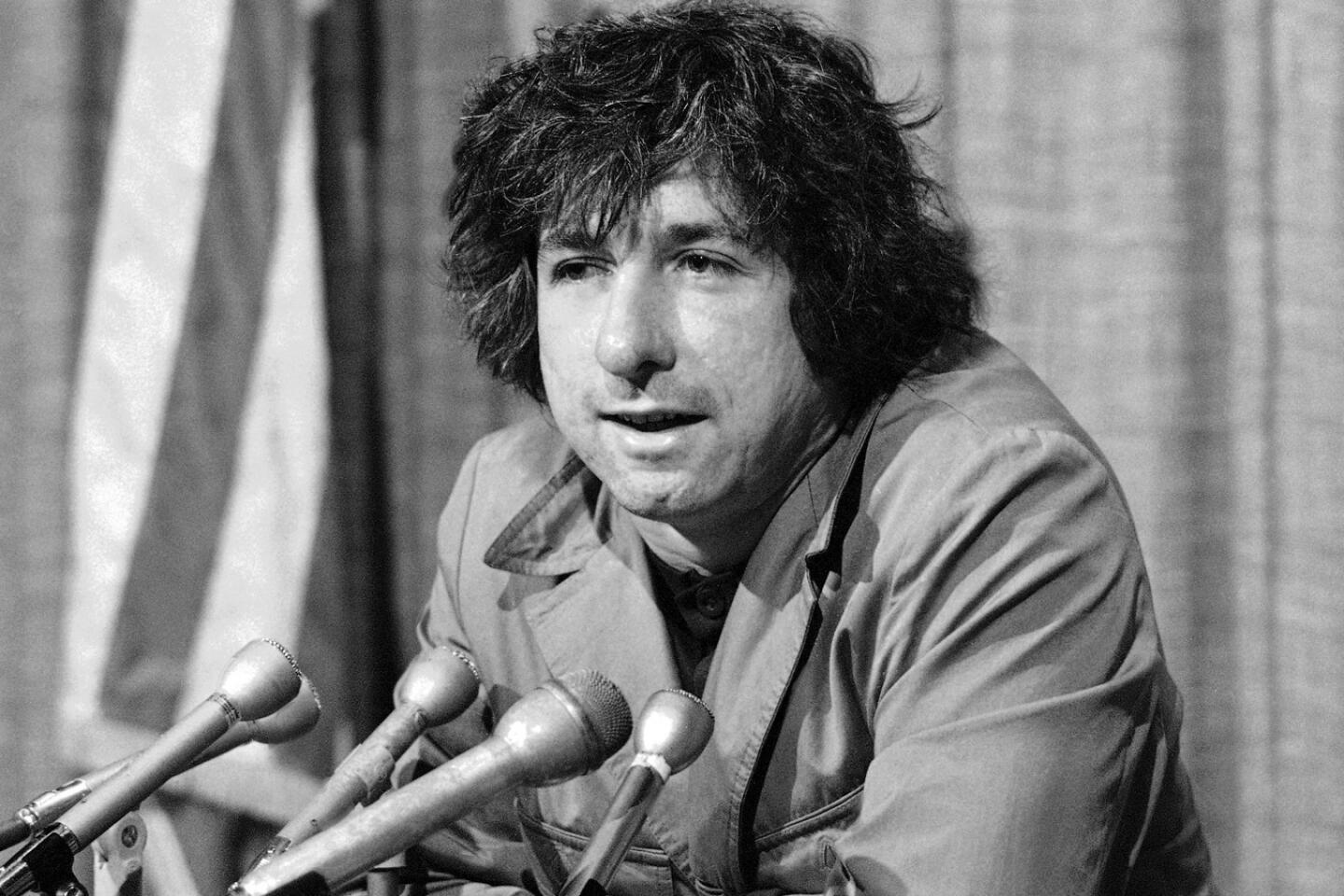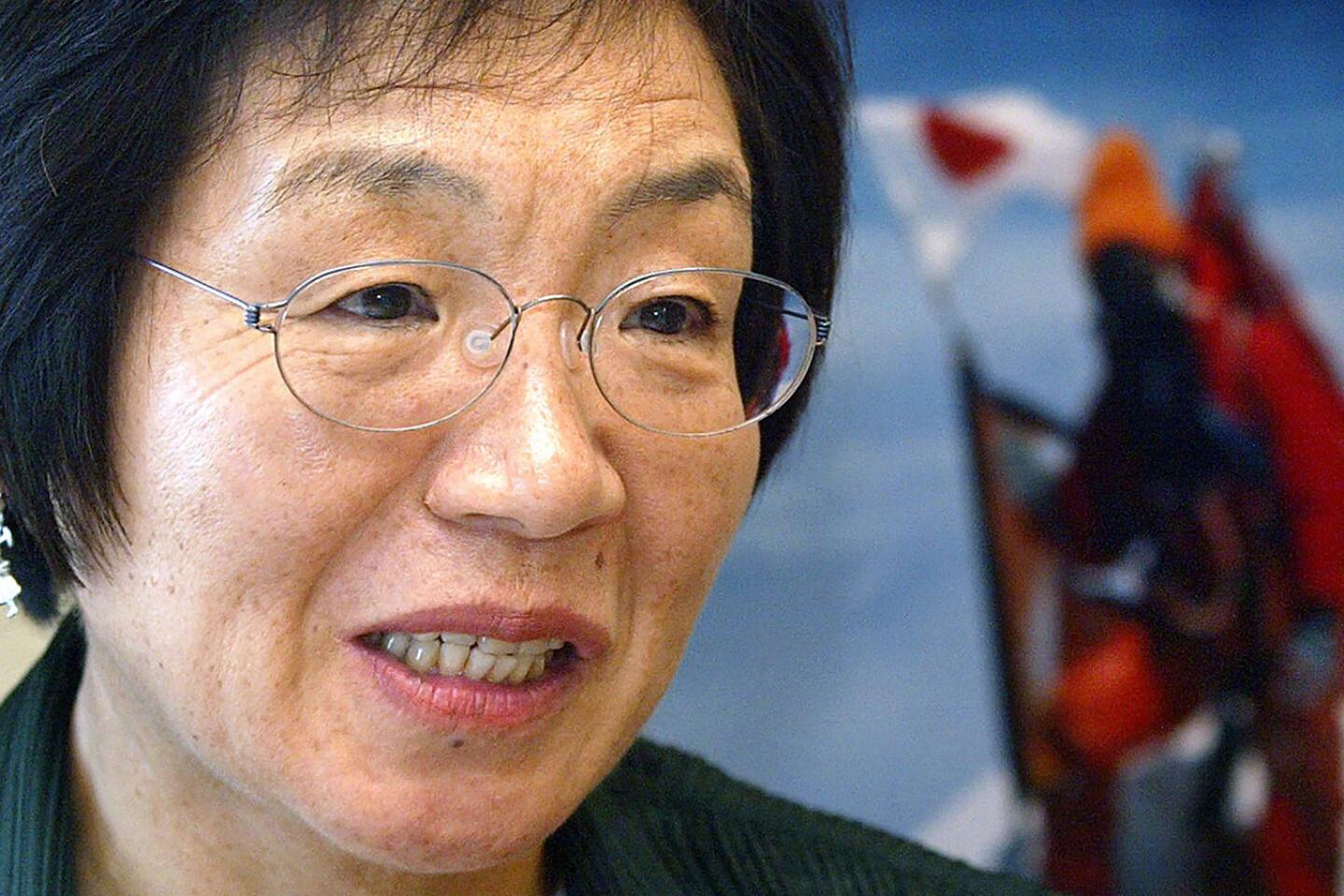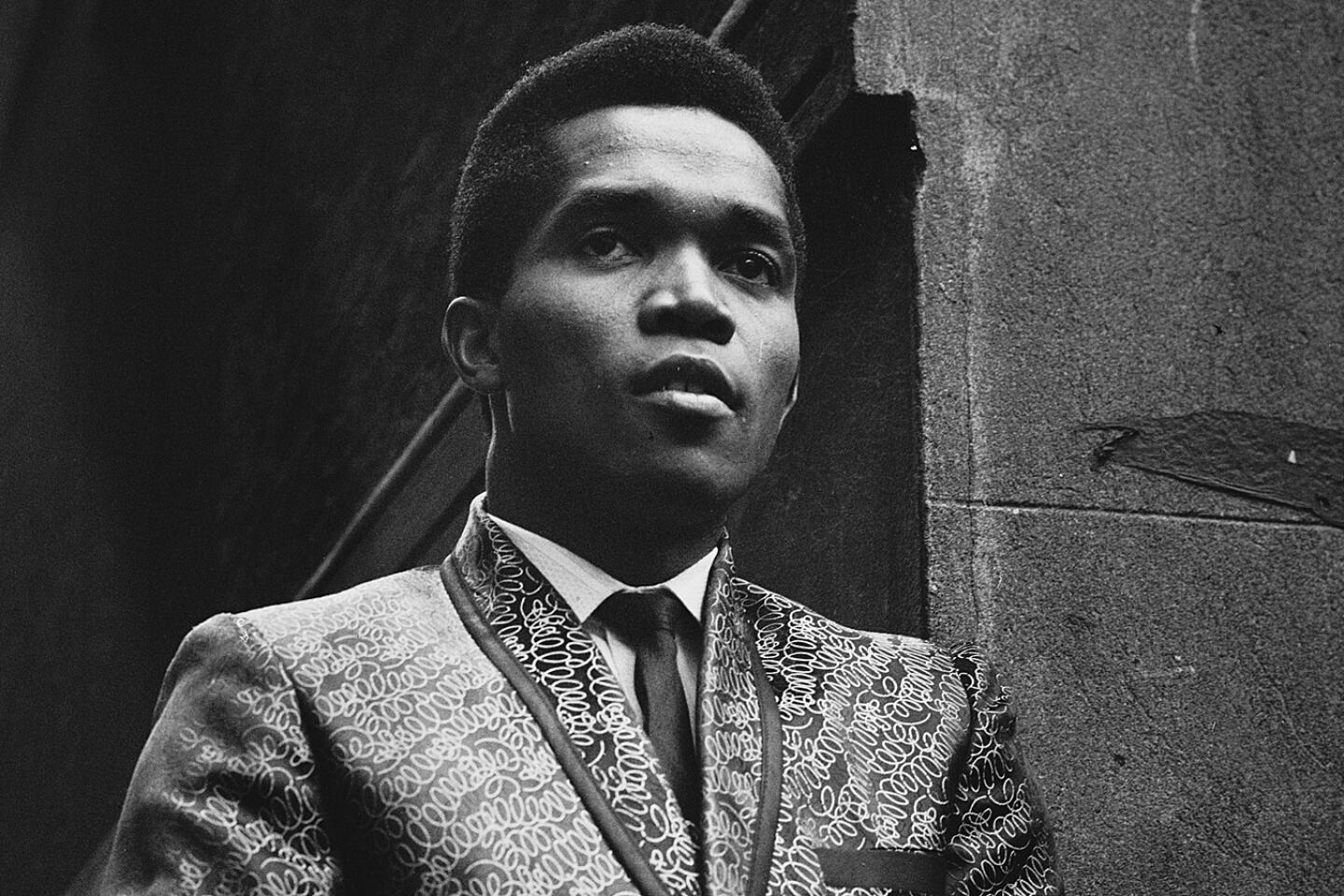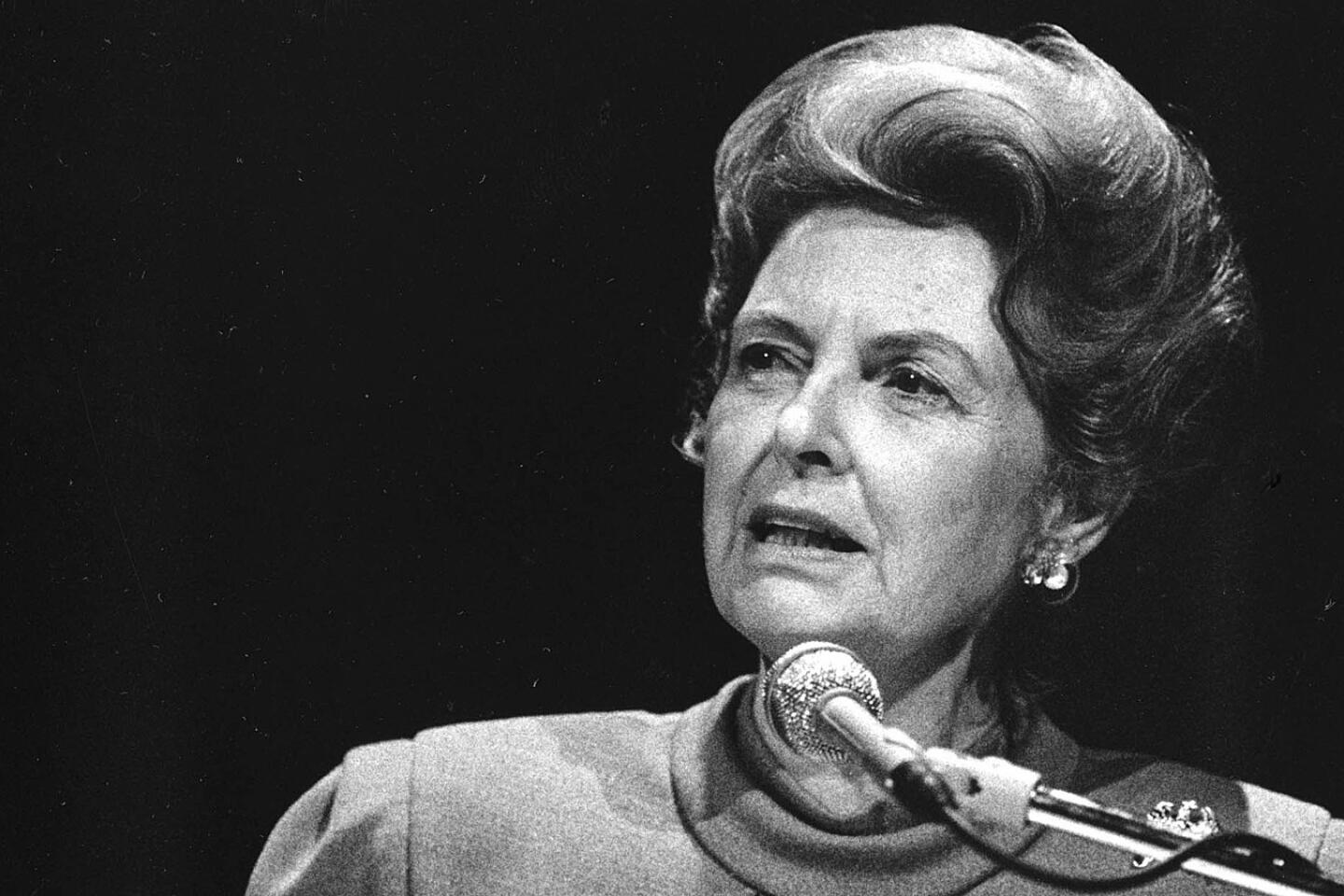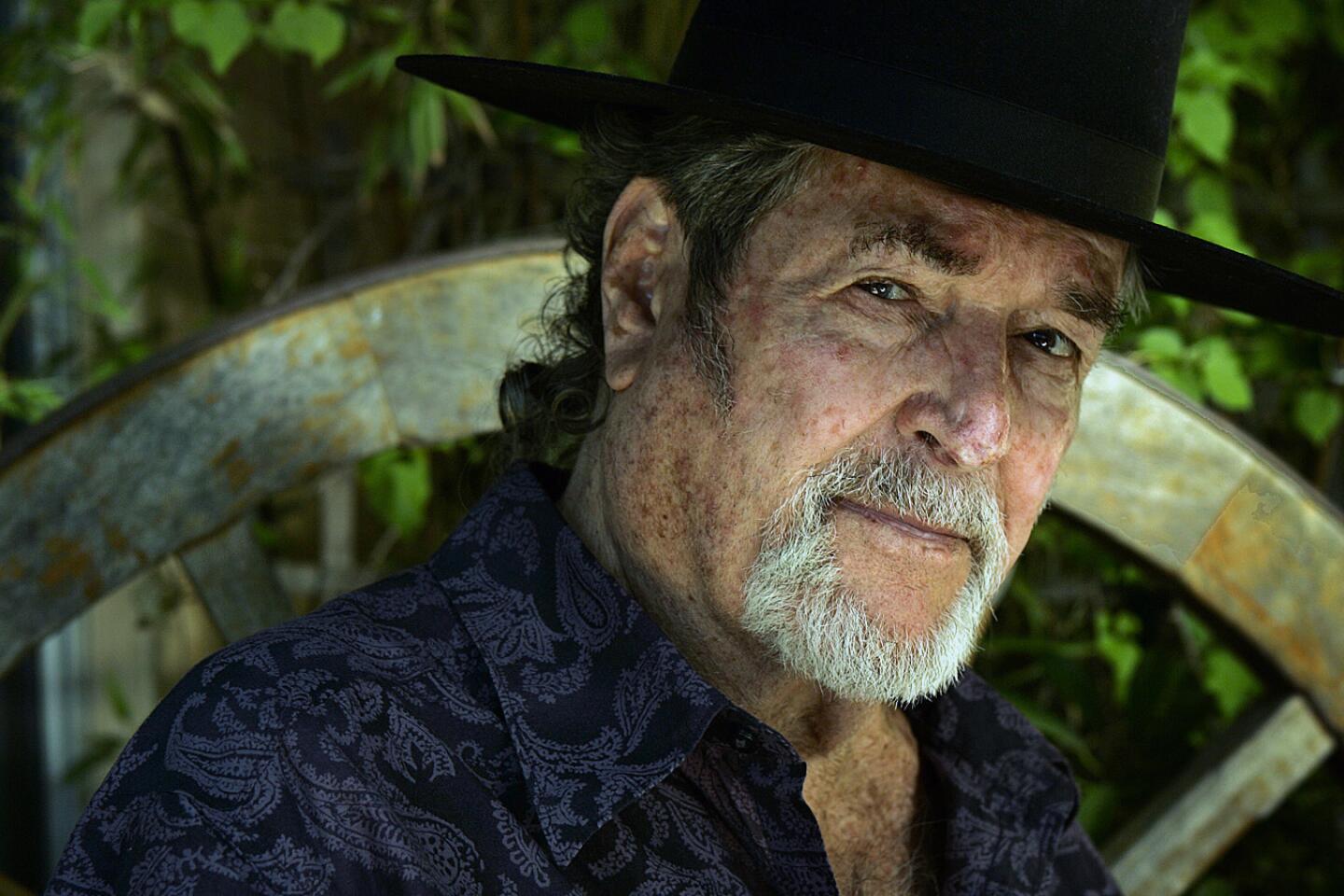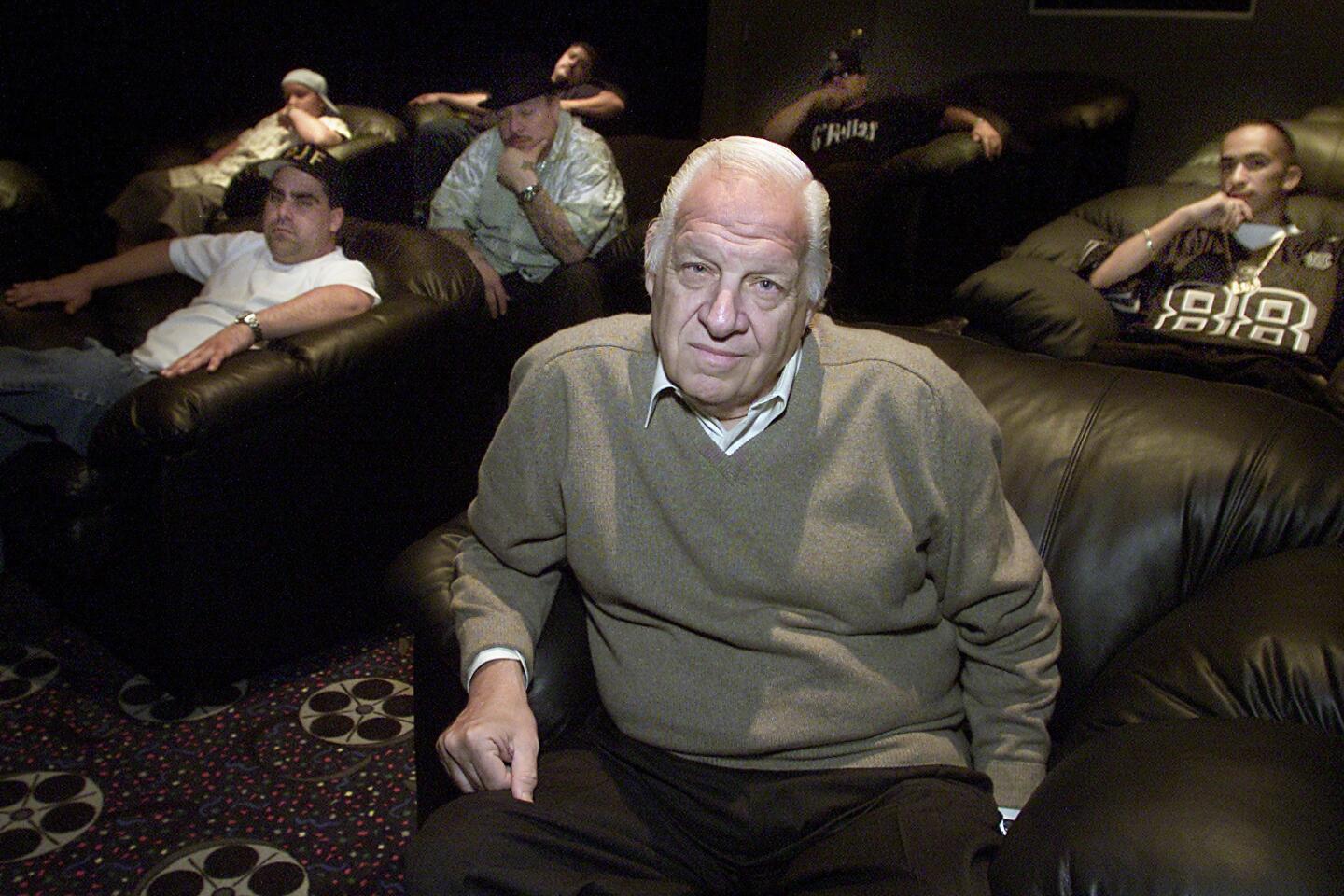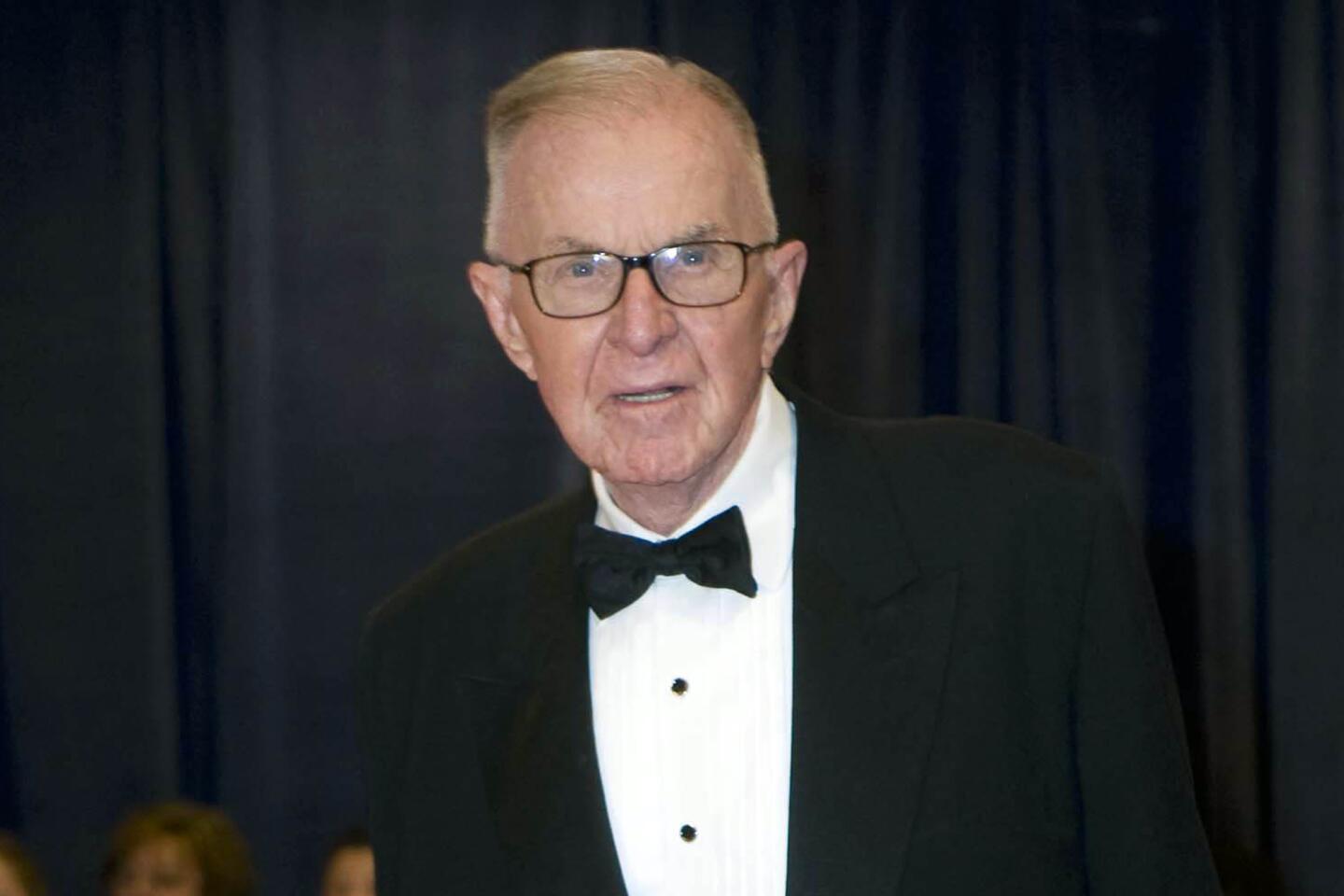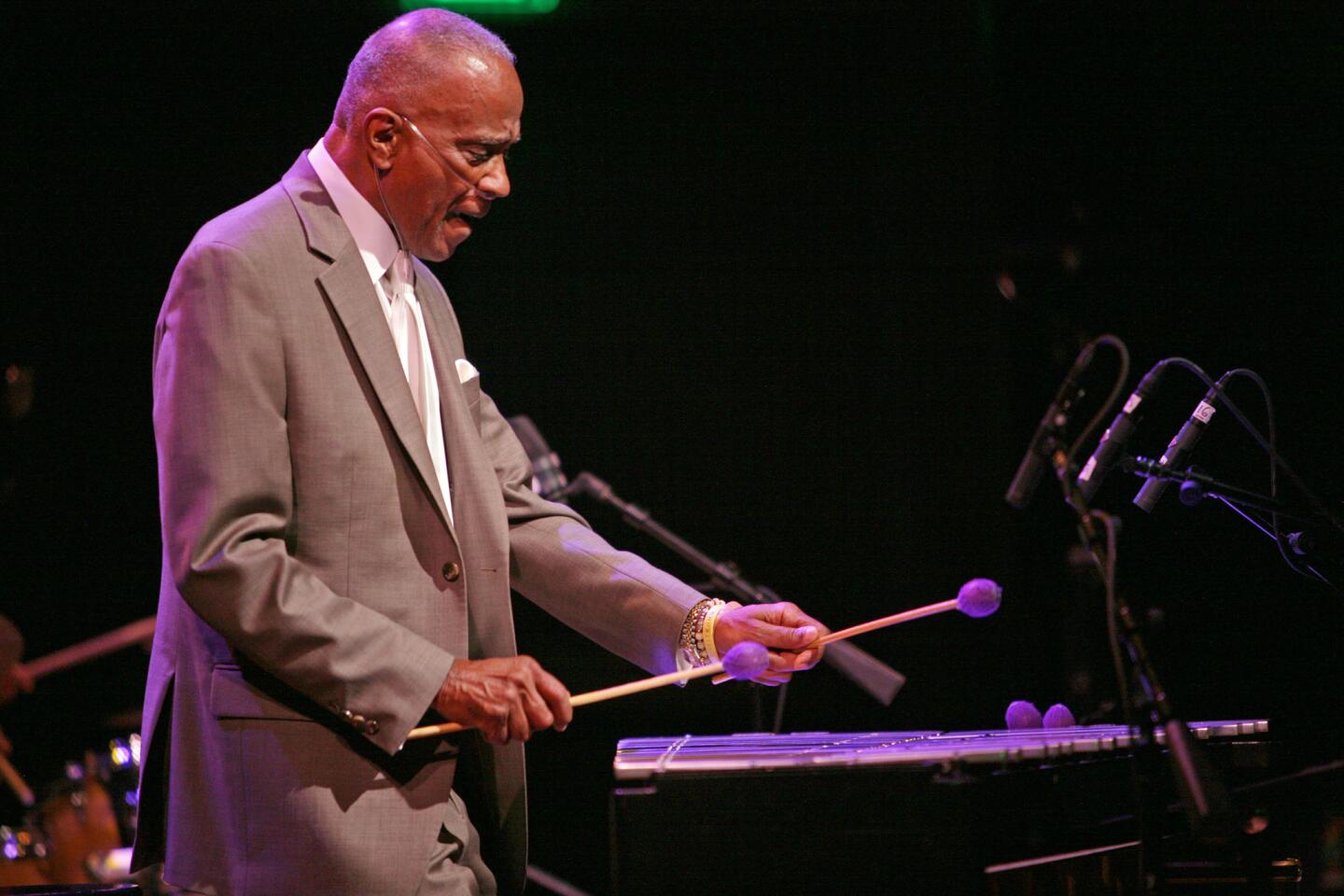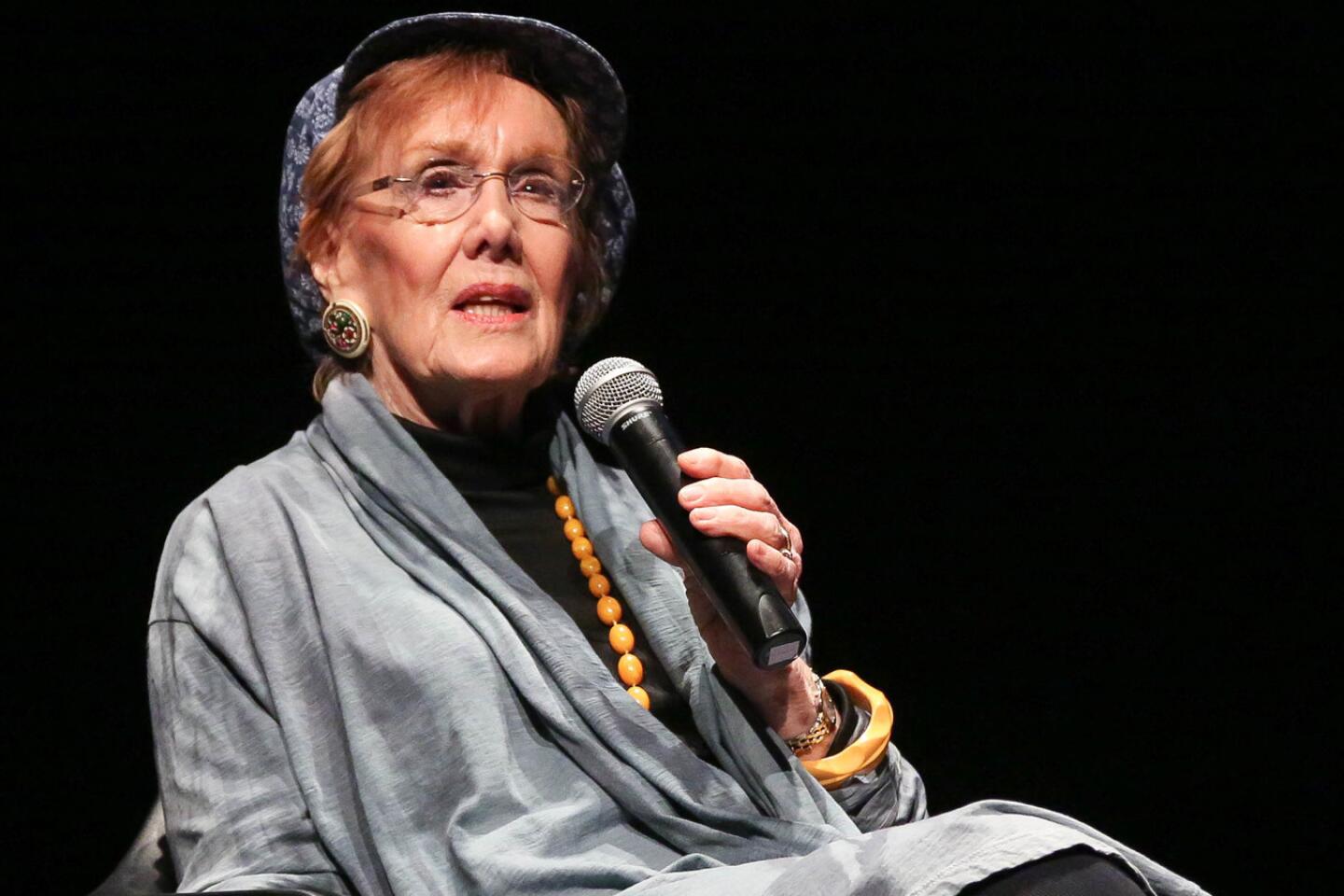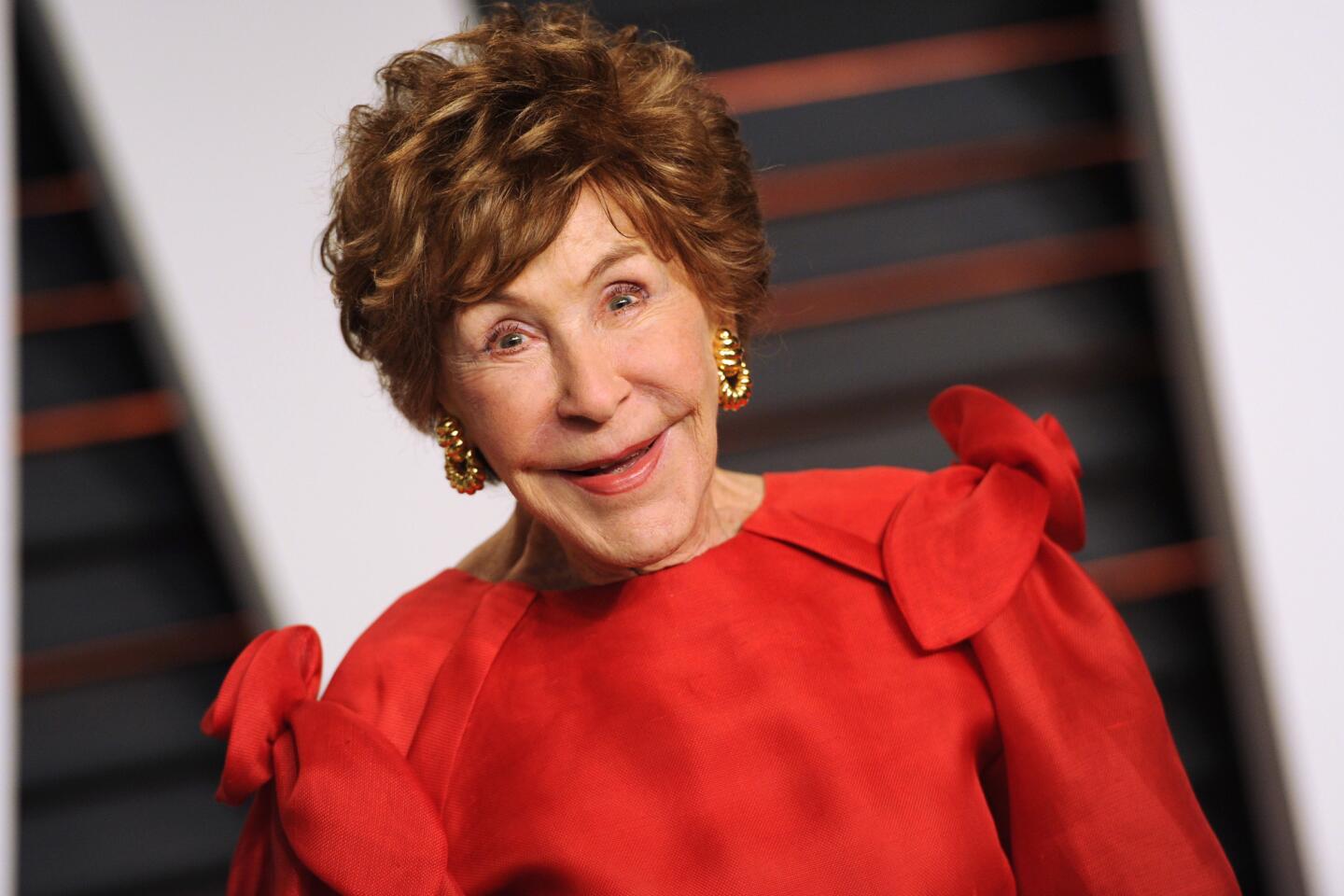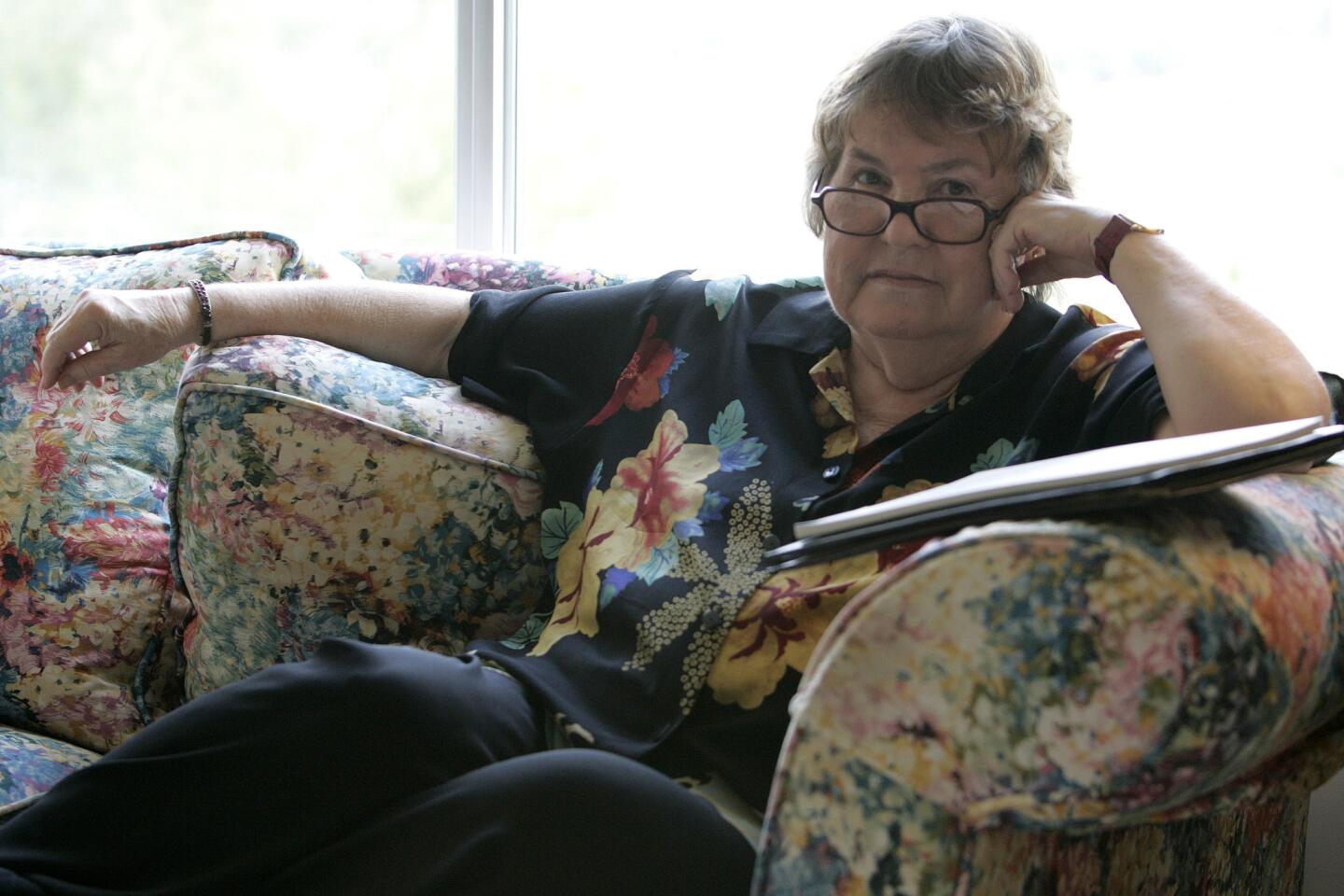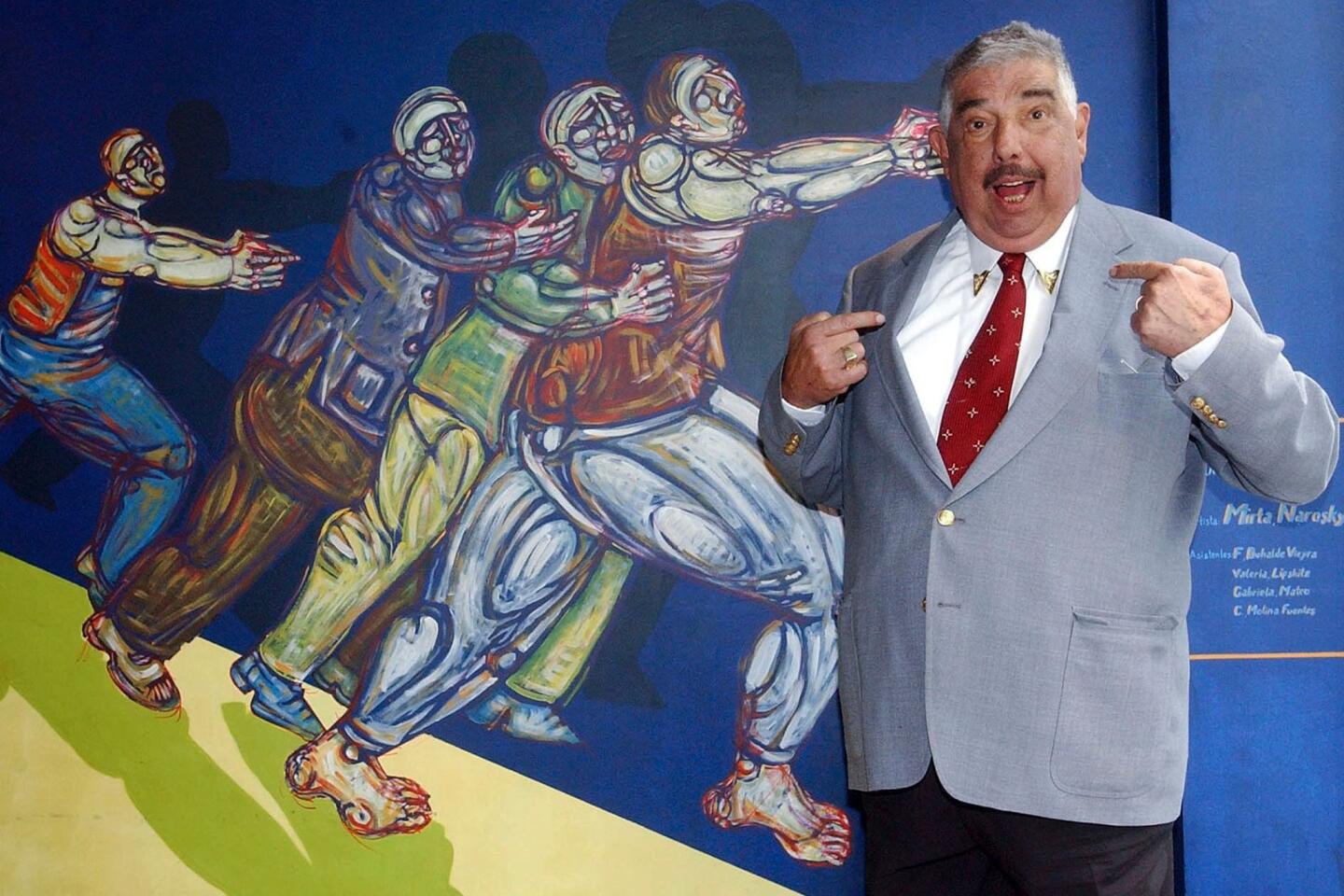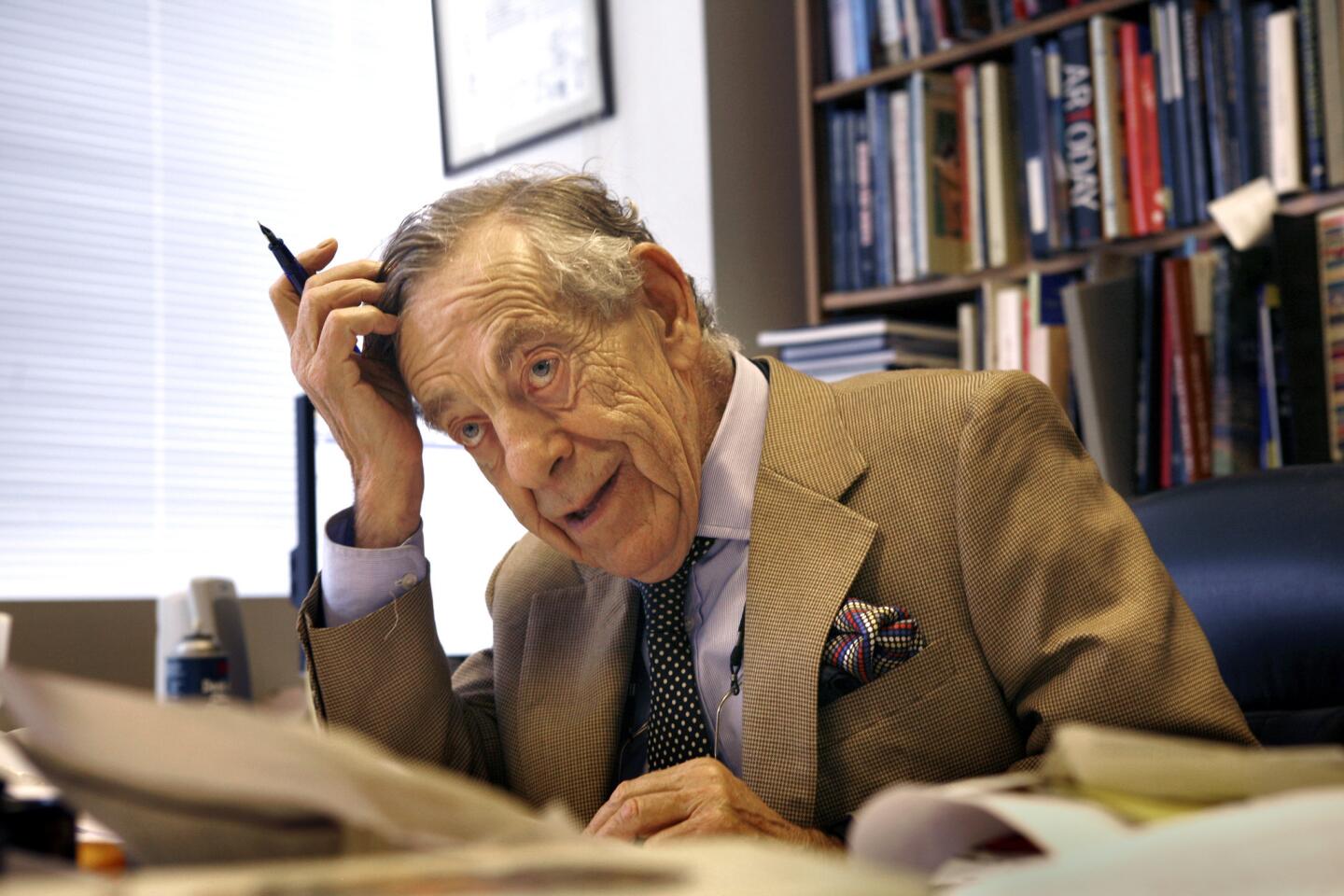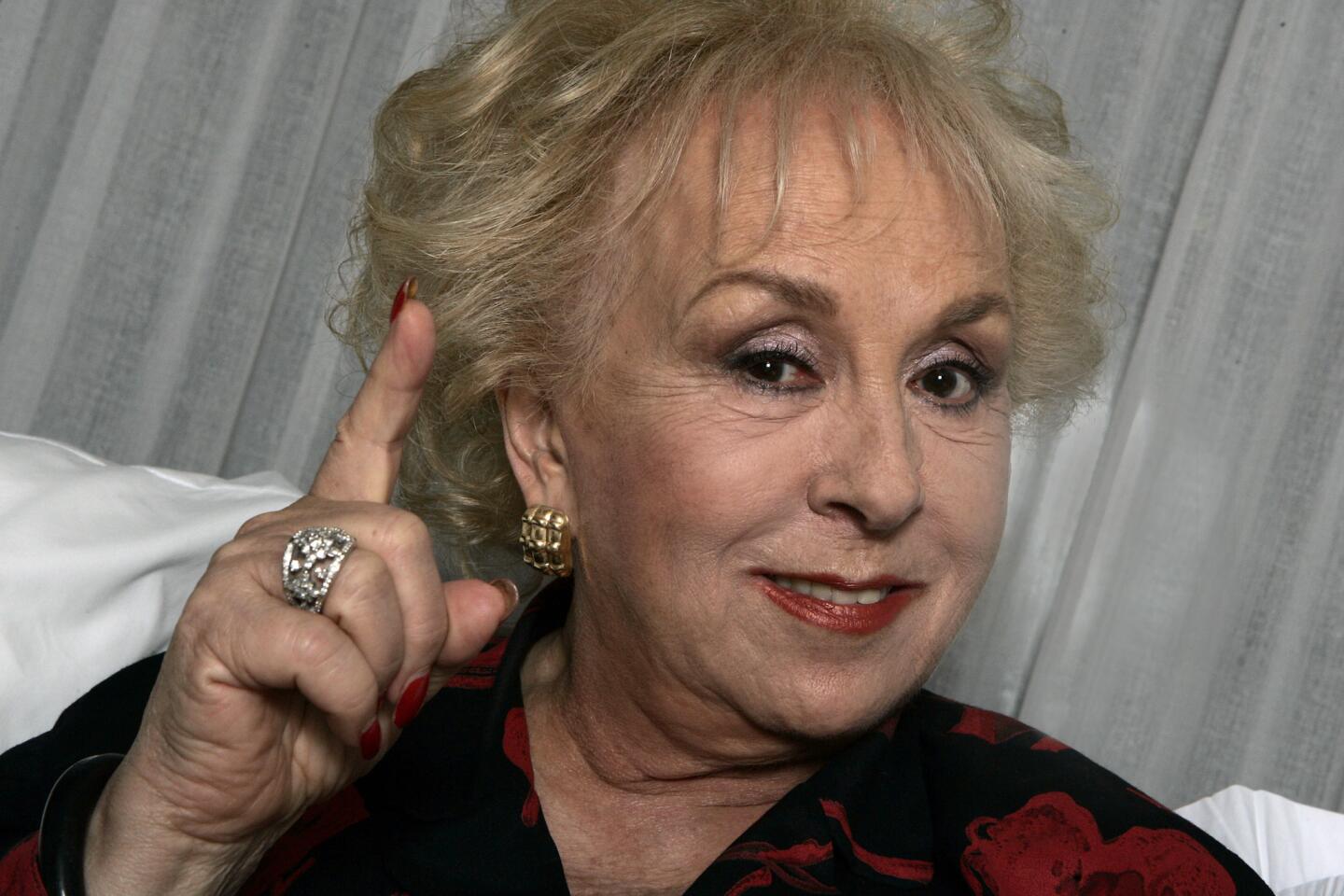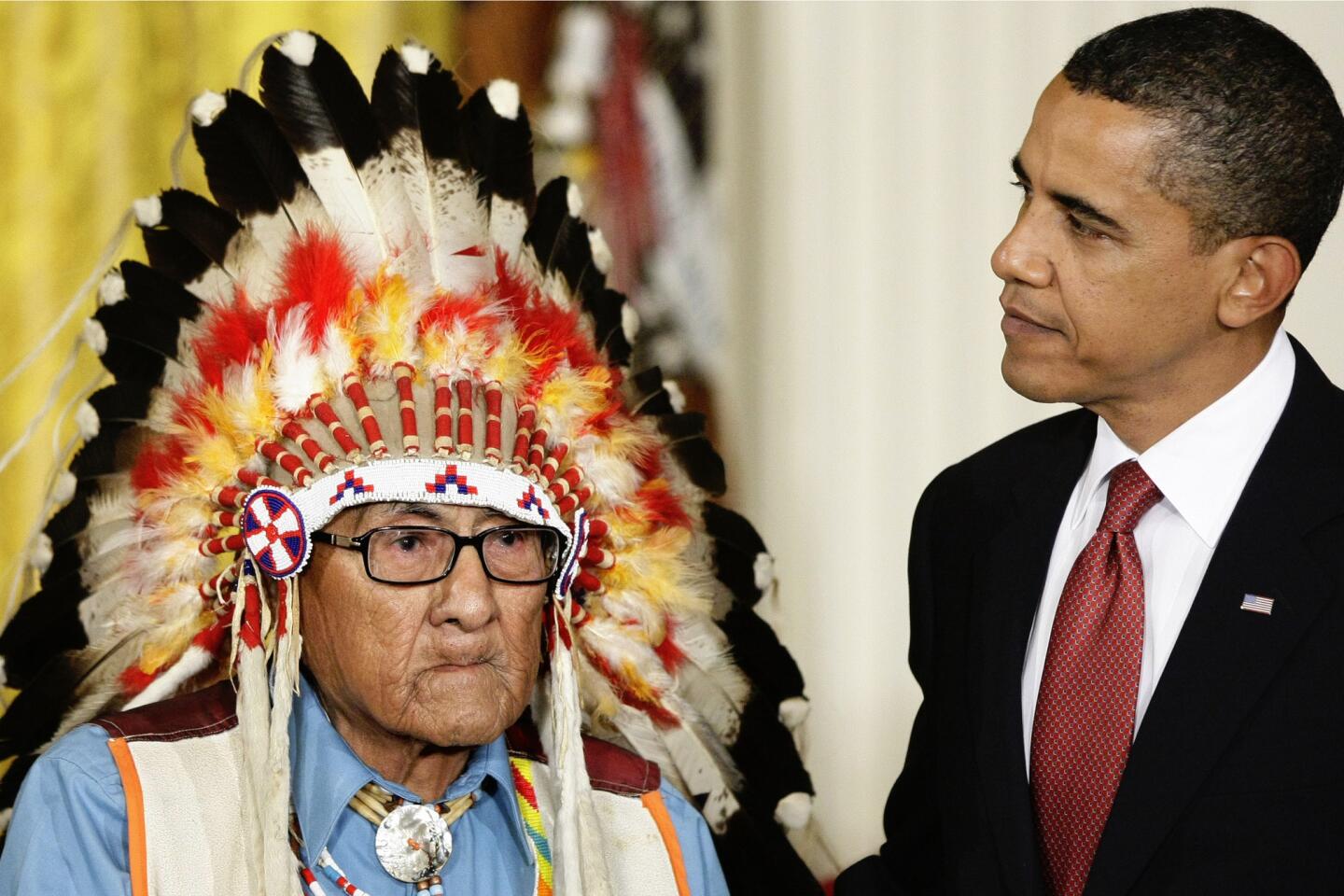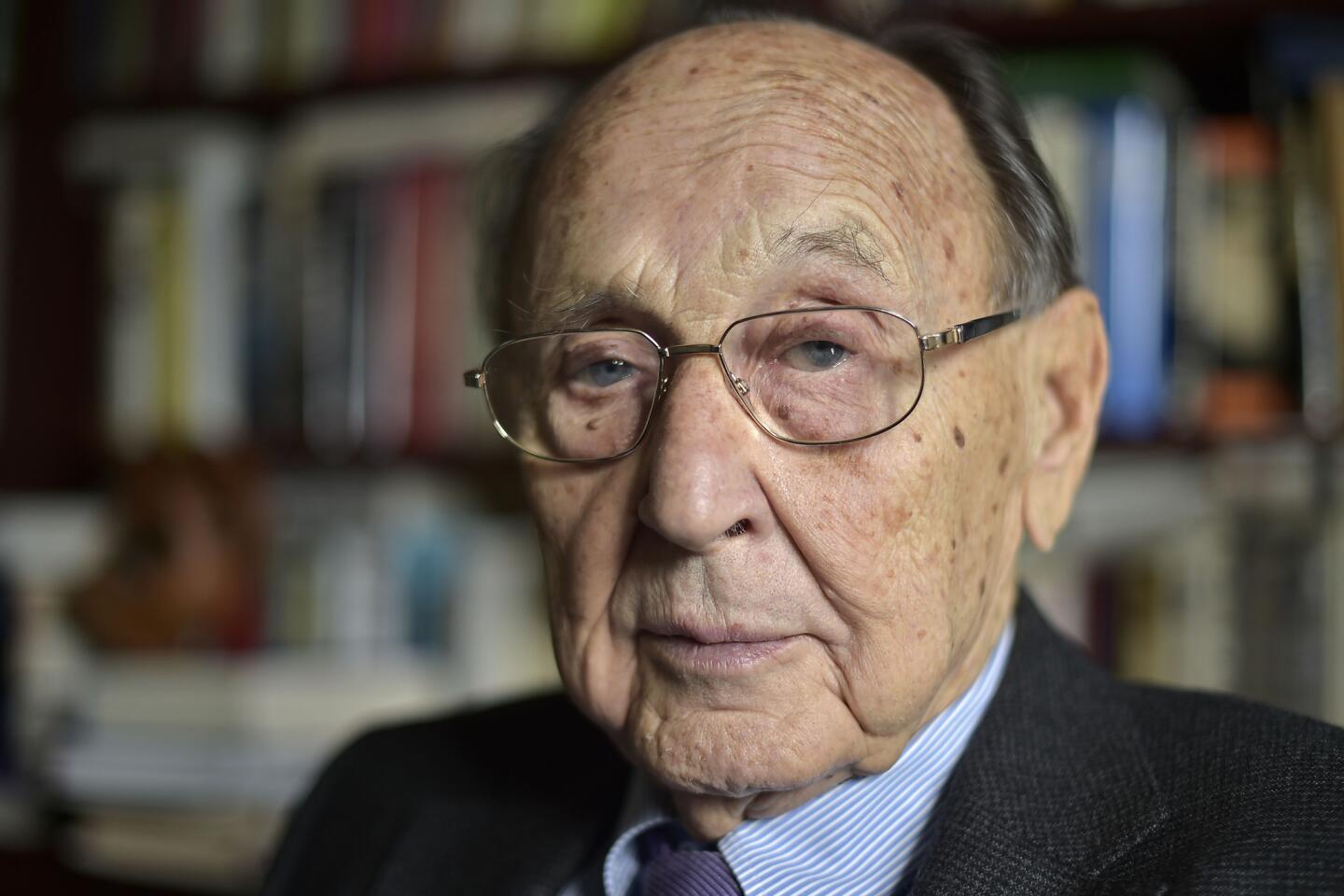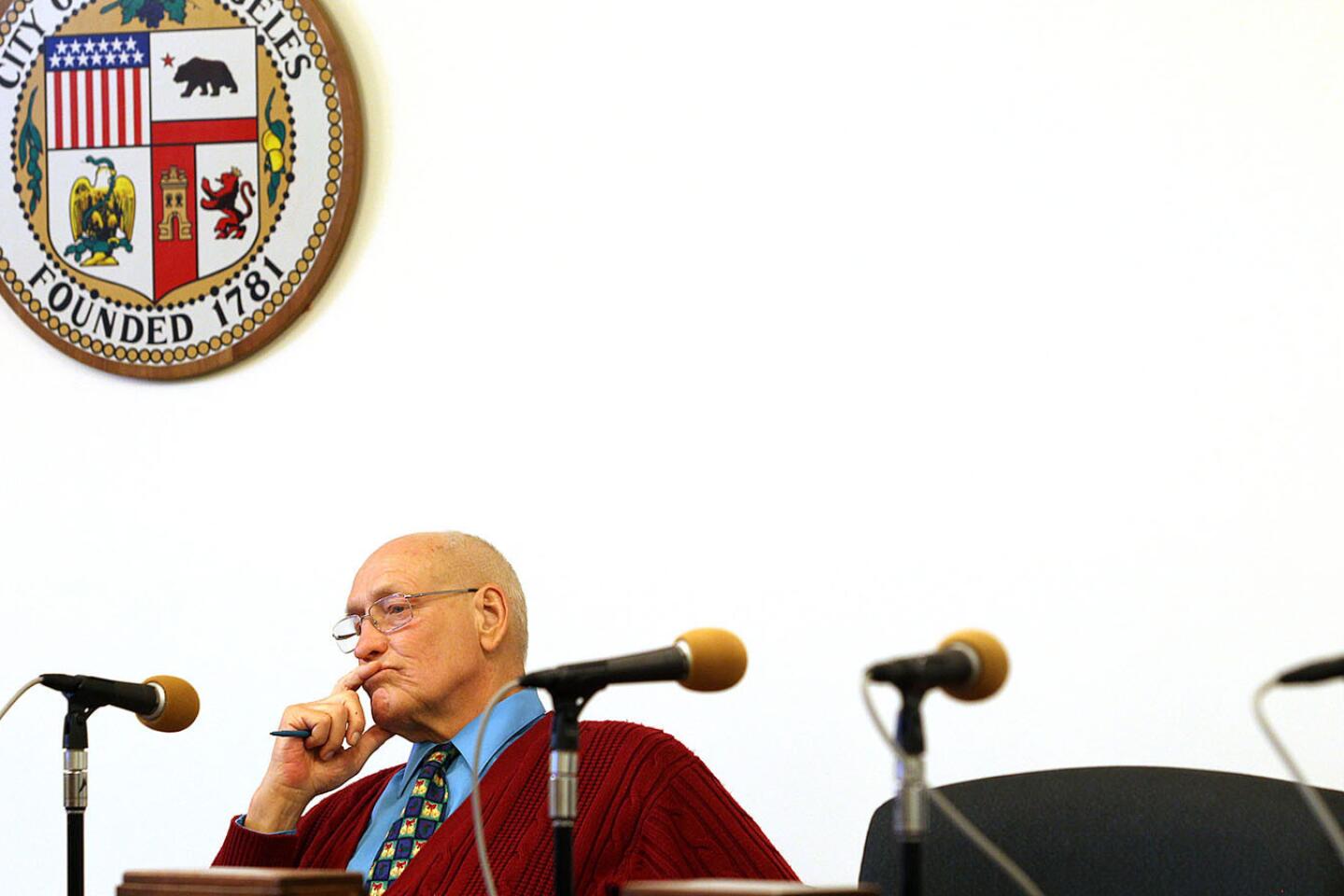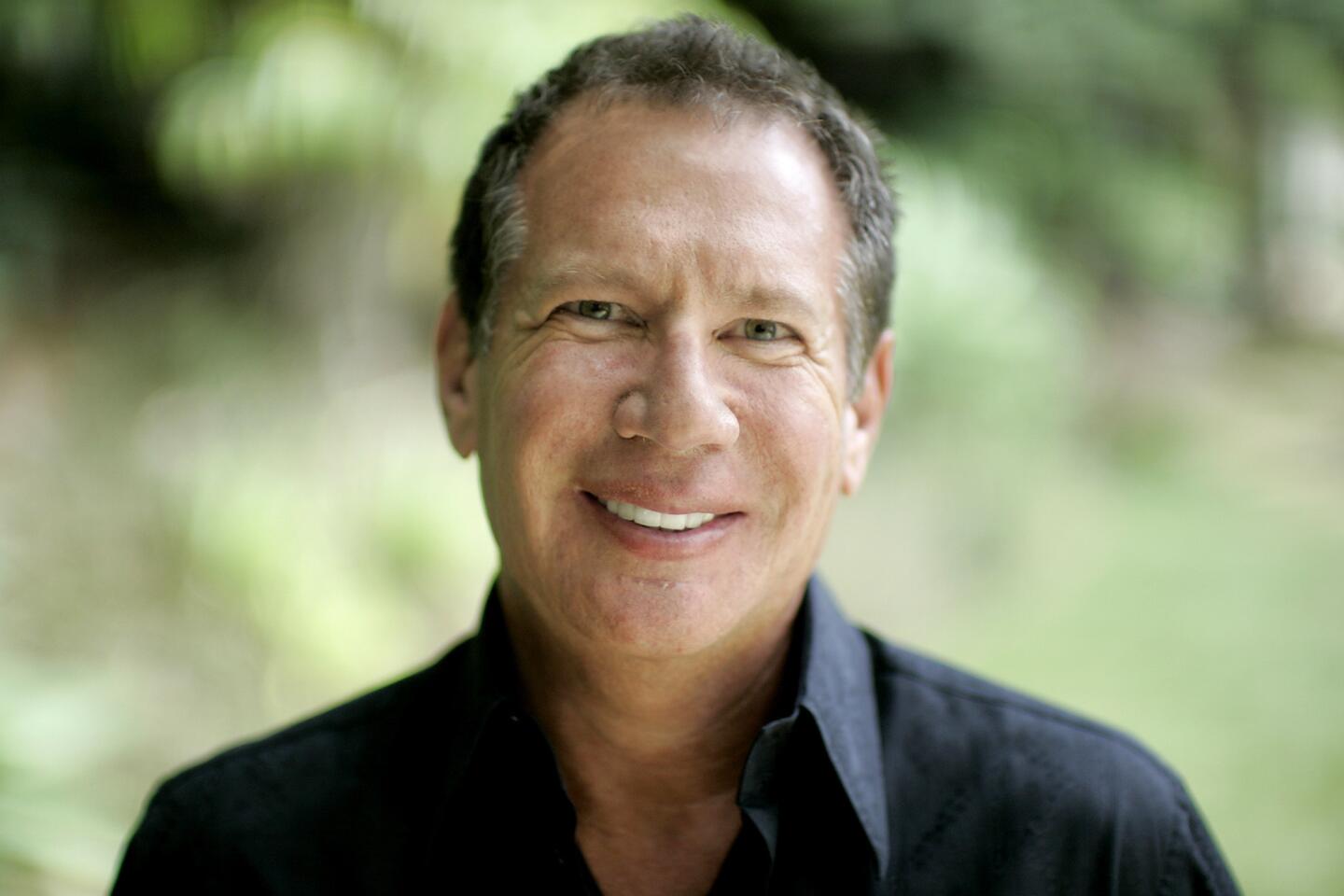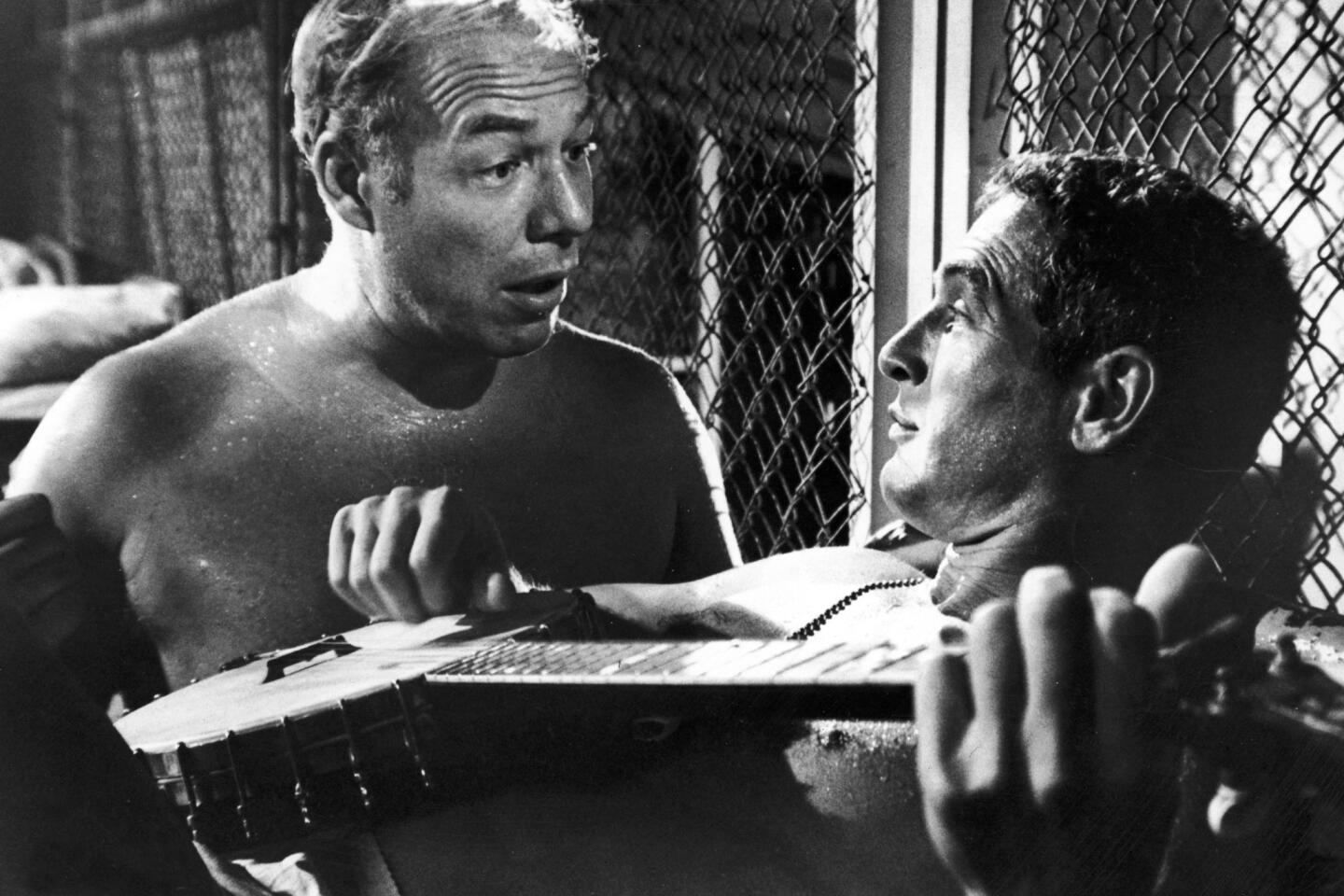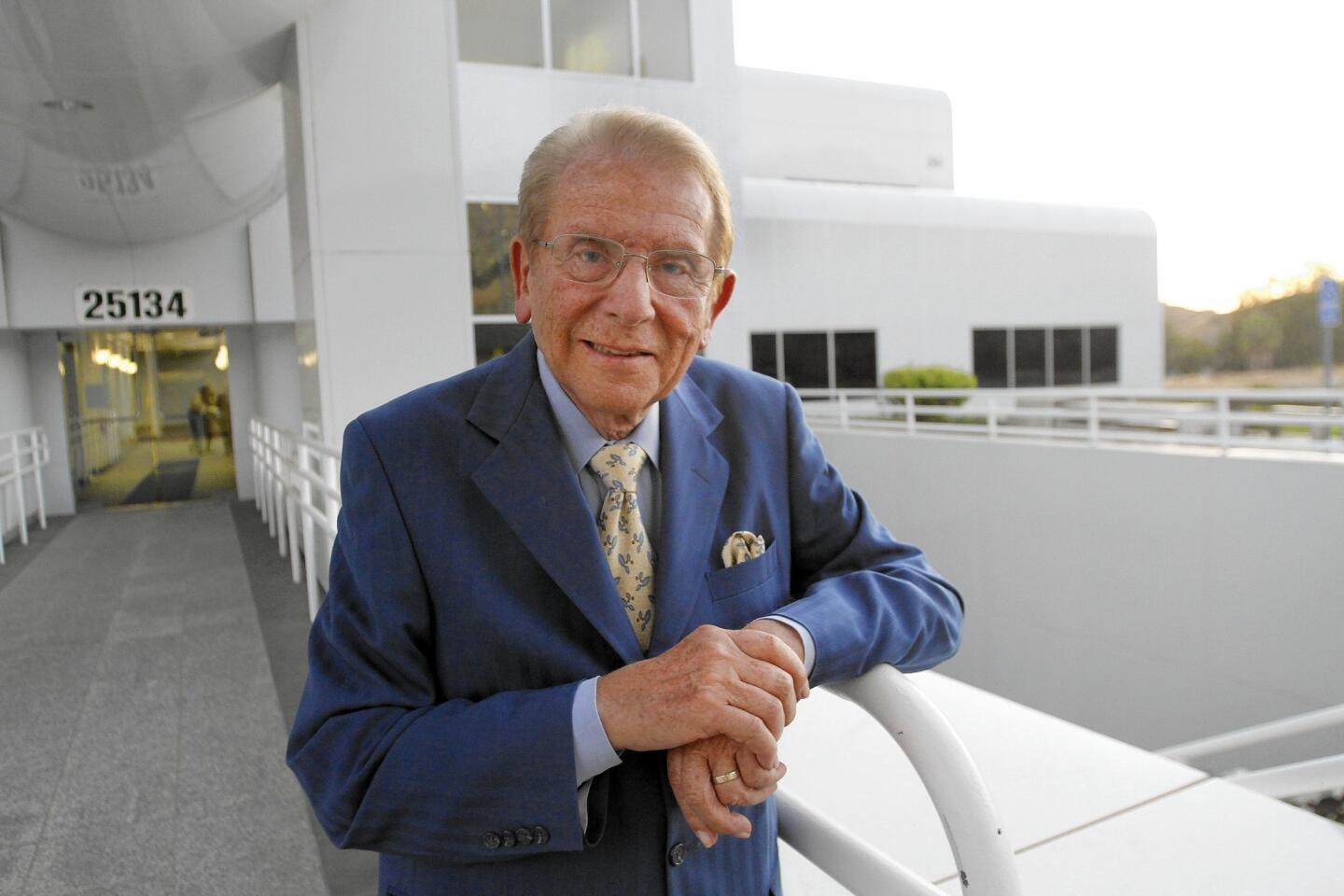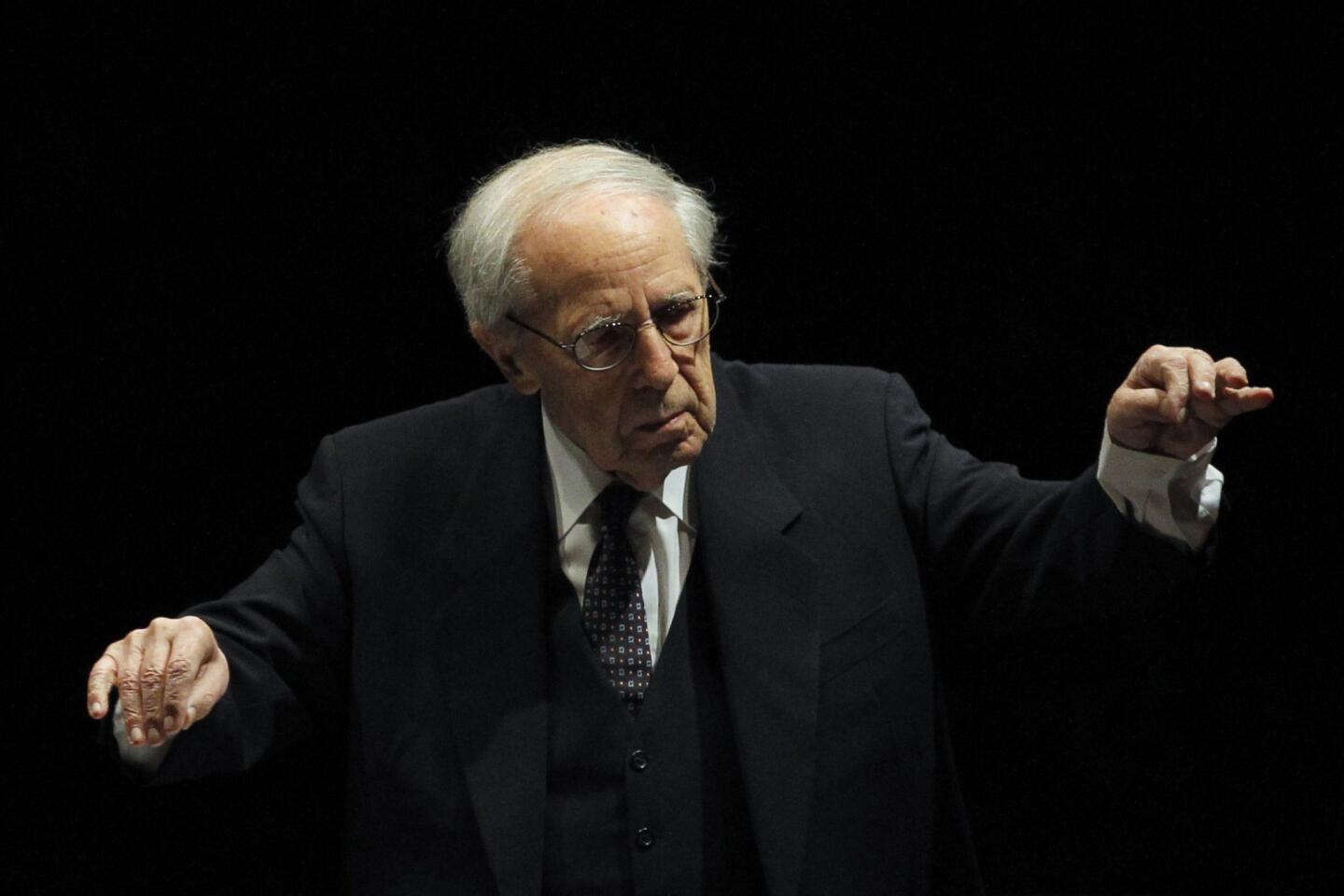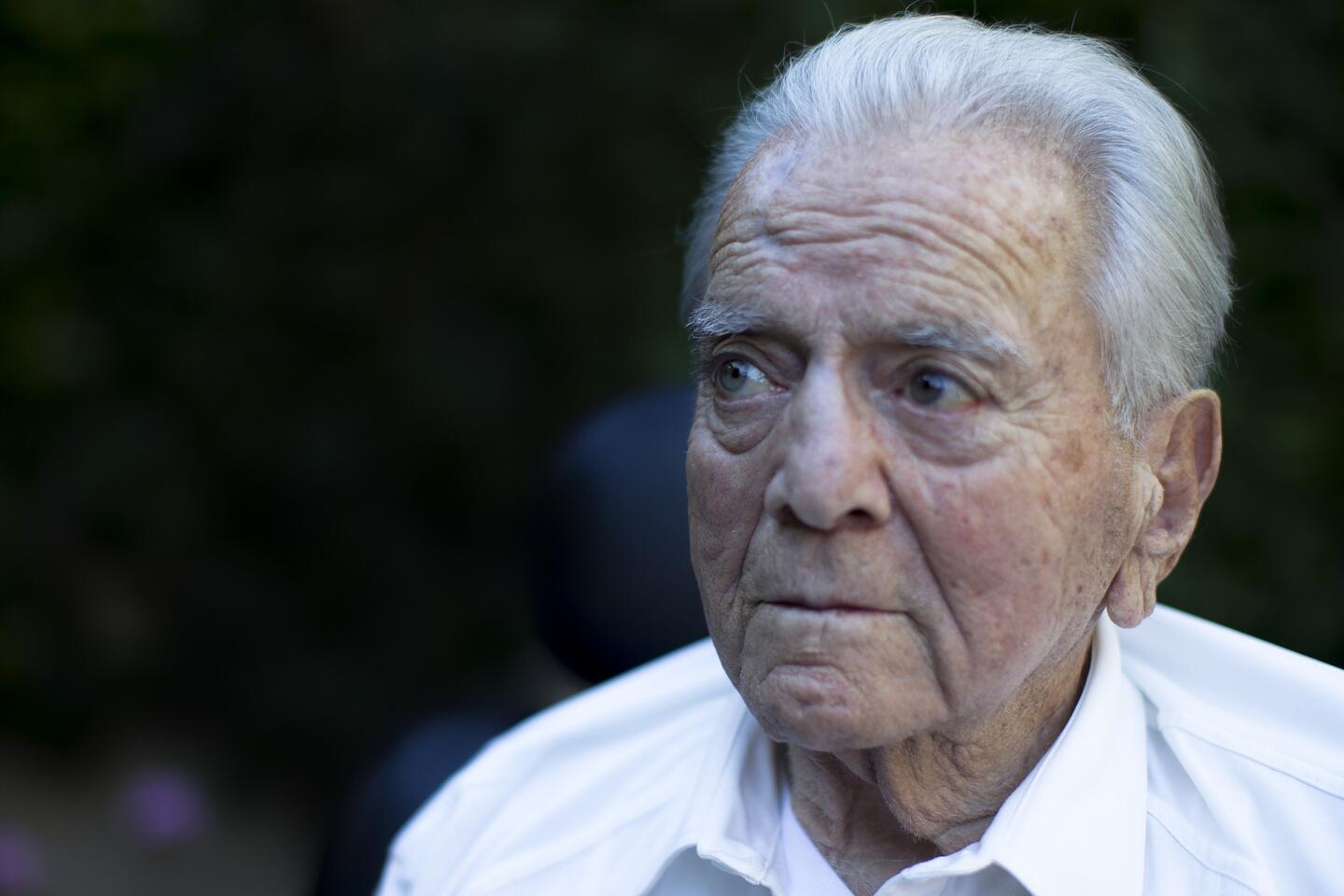Janet Reno, whose unusually long tenure as the United States’ first female attorney general began with a disastrous assault on cultists in Texas and ended after the dramatic raid that returned Elian Gonzalez to his Cuban father, has died after a years-long struggle with the debilitation of Parkinson’s disease. She was 78.
Her goddaughter Gabrielle D’Alemberte said Reno spent her final days at home in Miami surrounded by family and friends, according to the Associated Press.
When Reno arrived in Washington in 1993 as President Clinton’s third choice for the job, she cut an unusual figure for the nation’s top law enforcement official, not only because of her sex.
She was tall (nearly 6-foot-2), single and brought with her a somewhat mythic reputation as a woman who had wrestled alligators while growing up in rural south Florida and as a tough prosecutor in Miami who wrestled with mobsters and drug dealers.
Within a few weeks she made what she acknowledged was a deadly blunder, approving an FBI assault on a cult compound in Waco, Texas, that led to the death of about 80 children, women and men.
The disaster could have sent her packing, but the fact that she forthrightly took the blame (“I’m accountable. The buck stops with me.”) instead established her in the public mind as the rare political figure who accepted responsibility for her actions.
“People really liked Janet Reno,” said Carl Stern, a former network news correspondent who served as her spokesman. “People judged her to be authentic and sincere and working in their service.”
1/61
Wong’s masterly touch brought a poetic quality to Disney’s “Bambi” that has helped it endure as a classic of animation. The pioneering Chinese American artist influenced later generations of animators. Full obituary
(Peter Brenner / Handout) 2/61
After bursting onto the scene opposite Gene Kelly in the classic 1952 musical “Singin’ in the Rain,” Reynolds became America’s Sweetheart and a potent box office star for years. Her passing came only one day after her daughter, Carrie Fisher, died at the age of 60. Reynolds was 84. Full obituary
(John Rooney / Associated Press) 3/61
George Michael, the English singer-songwriter who shot to stardom in the 1980s as half of the pop duo Wham!, went on to become one of the era’s biggest pop solo artists with hits such as “Faith” and “I Want Your Sex.” He was 53. Full obituary
(Francois Mori / Associated Press) 4/61
The thoracic surgeon came up with an anti-choking technique in 1974. So simple it could be performed by children, the eponymous maneuver made Heimlich a household name. He was 96. Full obituary
(Al Behrman / Associated Press) 5/61
The hugely popular south Indian actress later turned to politics and became the highest elected official in the state of Tamil Nadu. She was 68. Full obituary
(AFP / Getty Images) 6/61
Best known for her portrayal of Carol Brady on “The Brady Bunch,” Henderson
portrayed an idealized mother figure for an entire generation. Her character was the center of the show, cheerfully mothering her brood in an era when divorce was becoming more common. She was 82. Full obituary
(Jay L. Clendenin / Los Angeles Times) 7/61
Dubbed “Dr. Wonderful” by the media, the Texas surgeon performed the first successful heart transplant in the United States and the world’s first implantation of a wholly artificial heart. He also founded the Texas Heart Institute in Houston. He was 96. Full obituary
(David J. Phillip / Associated Press) 8/61
The prominent Los Angeles attorney went from defending his father, a powerful mob boss, to representing celebrities, corrupt businessmen, drug kingpins and the so-called Hollywood Madam, Heidi Fleiss. He was 70. Full obituary
(Ken Hively / Los Angeles Times) 9/61
The award-winning journalist wrote for the Washington Post and the New York Times before becoming an anchor of public television news programs “PBS NewsHour” and “Washington Week.” Her career also included moderating the vice presidential debates in 2004 and 2008. She was 61. Full obituary
(Brendan Smialowski / Getty Images) 10/61
Instantly recognizable for his long white mane and a rich, hearty voice, Russell sang, wrote and produced some of rock ‘n’ roll’s top records. His hits included “Delta Lady,” “Roll Away the Stone,” “A Song for You” and “Superstar.” He was 74. Full obituary
(Luis Sinco / Los Angeles Times) 11/61
The singer-songwriter’s literary sensibility and elegant dissections of desire made him one of popular music’s most influential and admired figures for four decades. Cohen is best known for his songs such as “Hallelujah,” “Suzanne” and “Bird on the Wire.” He was 82. Full obituary
(Joel Saget / AFP / Getty Images) 12/61
Reno was the first woman to serve as United States attorney general. Her unusually long tenure began with a disastrous assault on cultists in Texas and ended after the dramatic raid that returned Elian Gonzalez to his Cuban father. She was 78. Full obituary
(Dennis Cook / Associated Press) 13/61
The 1960s radical was in the vanguard of the movement to stop the Vietnam War and became one of the nation’s best-known champions of liberal causes. He was 76. Full obituary
(George Brich / Associated Press) 14/61
Tabei was the first woman to climb Mount Everest in 1975. In 1992, she also became the first woman to complete the “Seven Summits,” reaching the highest peaks of the seven continents. She was 77. Full obituary
(AFP / Getty Images) 15/61
Nixon was the creative force behind the popular soap operas “One Life to Live” and “All My Children.” She was a pioneer in bringing serious social issues, like racism, AIDS and prostitution, to daytime television. She was 93. Full obituary
(Chris Pizzello / Associated Press) 16/61
The former Israeli president was one of the founding fathers of Israel. The Nobel peace prize laureate was an early advocate of the idea that Israel’s survival depended on territorial compromise with the Palestinians. He was 93. Full obituary
(AFP / Getty Images) 17/61
A seven-time professional major tournament champion, Palmer revolutionized sports marketing as it is known today, and his success contributed to increased incomes for athletes across the sporting spectrum. He was 87. Full obituary
(David J. Phillip / Associated Press) 18/61
Known as the Vatican’s exorcist, Amorth, a Roman Catholic priest, helped promote the ritual of banishing the devil from people or places. He was 91. Full obituary
(AFP / Getty Images) 19/61
The American playwright was known for works such as “The Zoo Story,” “The Sandbox,” “Who’s Afraid of Virginia Woolf?” and “A Delicate Balance.” He was awarded the Pulitzer Prize for drama three times. He was 88. Full obituary
(Jennifer S. Altman / For the Times) 20/61
The ska pioneer and Jamaican music legend recorded thousands of records, including such hits as “Al Capone” and “Judge Dread.” He helped ignite the ska movement in England, and later helped carry it into the rock-steady era in the mid-1960s. He was 78. Full obituary
(Larry Ellis / Getty Images) 21/61
Known as “the first lady of anti-feminism,” Schlafly was a political activist who galvanized grass-roots conservatives to help defeat the Equal Rights Amendment and, in ensuing decades, effectively push the Republican Party to the right. She was 92. Full obituary
(Christine Cotter / Los Angeles Times) 22/61
O’Brian helped tame the Wild West as the star of TV’s “The Life and Legend of Wyatt Earp” and was the founder of a long-running youth leadership development organization. “Wyatt Earp” became a top 10-rated series and made O’Brian a household name. He was 91. Full obituary
(Ricardo DeAratanha / Los Angeles Times) 23/61
Jerry Heller, the early manager of N.W.A, was an important and colorful personality in the emerging West Coast rap scene in the 1980s. Heller was 75. Full obituary
(Lori Shepler / Los Angeles Times) 24/61
Two-time Oscar nominee Gene Wilder brought a unique blend of manic energy and world-weary melancholy to films as varied as 1971’s children’s movie “Willy Wonka & the Chocolate Factory” and the 1980 comedy “Stir Crazy.” He was 83. Full obituary
(AFP / Getty Images) 25/61
The beloved top-selling Mexican singer wooed crowds on both sides of the border with ballads of love and heartbreak for more than four decades. He was 66. Full obituary
(Wilfredo Lee / Associated Press) 26/61
Known as the “queen of knitwear,” Sonia Rykiel became a fixture of Paris’ fashion scene, starting in 1968. French President Francois Hollande praised her as “a pioneer” who “offered women freedom of movement.” She was 86. Full obituary
(Thibault Camus / Associated Press) 27/61
The conservative political commentator hosted the long-running weekly public television show “The McLaughlin Group” that helped alter the shape of political discourse since its debut in 1982. He was 89. Full obituary
(Kevin Wolf / Associated Press) 28/61
Best-known for his post-bop recordings for Blue Note Records in the 1960s and 1970s, the inventive jazz vibraphonist played with a litany of jazz greats as both bandleader and sideman during a career spanning more than 50 years. He was 75. Full obituary
(Scott Chernis / Associated Press) 29/61
The British actor, who was 3-foot-8, gave life to the “Star Wars” droid R2-D2, one of the most beloved characters in the space-opera franchise and among the most iconic robots in pop culture history. He was 81. Full obituary
(Reed Saxon / Associated Press) 30/61
For many in L.A., Folsom was the face of the Parent Teacher Student Assn., better known as the PTSA or PTA. He served as the official and unofficial watchdog over the Los Angeles Unified School District and wrote about his experiences in his blog. He was 69. Full obituary
(Mark Boster / Los Angeles Times) 31/61
Fountain combined the Swing Era sensibility of jazz clarinetist Benny Goodman with the down-home, freewheeling style characteristic of traditional New Orleans jazz to become a national star in the 1950s as a featured soloist on the “The Lawrence Welk Show.” He was 86. Full obituary
(Luis Sinco / Los Angeles Times) 32/61
Lowery was a pioneer in efforts to help people suffering from poverty, addiction and mental illness move out of tents and cardboard boxes on Los Angeles’ sidewalks and into supportive housing. She was 70. Full obituary
(Lawrence K. Ho / Los Angeles Times) 33/61
Nixon, a Hollywood voice double, can be heard in place of the leading actresses in such classic movie musicals as “West Side Story,” “The King and I” and “My Fair Lady.” She was 86. Full obituary
(Rob Kim / AFP/Getty Images) 34/61
The department store heir’s widow was a socialite and philanthropist who hobnobbed with the world’s elite, epitomized high fashion and was best friends with former first lady Nancy Reagan. She was 93. Full obituary
(Evan Agostini / Associated Press) 35/61
The author and teacher was long established as a leading literary figure of Southern California. Her works include “Golden Days,” “There Will Never Be Another You” and her memoir “Dreaming, Hard Luck and Good Times in America.” She was 82. Full obituary
(Ricardo DeAratanha / Los Angeles Times) 36/61
The Nazi concentration camp survivor won the Nobel in 1986 for his message “of peace, atonement and human dignity.” “Night,” his account of his year in death camps, is regarded as one of the most powerful achievements in Holocaust literature. He was 87. Full obituary
(Allen J. Schaben / Los Angeles Times) 37/61
One of the greatest basketball coaches of any gender or generation, Summitt spent 38 years as coach of the University of Tennessee women’s basketball team before dementia forced her early retirement. She was 64. Full obituary
(Wade Payne / Associated Press) 38/61
The iconic New York Times fashion photographer darted around New York on a humble bicycle to cover the style of high society grand dames and downtown punks with equal verve. He was 87. Full obituary
(Mark Lennihan / Associated Press) 39/61
Aguirre was best known for his portrayal of the towering “Profesor Jirafales,” the likable and often disrespected giraffe teacher on the 1970s-era hit show “El Chavo del Ocho.” The screwball comedy helped usher in an era of edgier comedy in Mexico and elsewhere. Aguirre was 82. Full obituary
(AFP / Getty Images) 40/61
The three-time heavyweight boxing champion’s brilliance in the ring and bravado outside it made his face one of the most recognizable in the world. He was 74. Full obituary
(John Rooney / Associated Press) 41/61
Like Walter Cronkite and Edward R. Murrow, the CBS newsman became part of a group of journalists who set the tone for storytelling on television. He was on “60 Minutes” for 46 years, holding the longest tenure on prime-time television of anyone in history. He was 84. Full obituary
(Carolyn Cole / Los Angeles Times) 42/61
The first African American chief of the Los Angeles Police Department, Williams steadied the agency in the tumultuous wake of the 1992 riots but was distrusted as an outsider by many officers and politicians. He was 72. Full obituary
(Nick Ut / Associated Press) 43/61
Best known for her role as Marie Barone on “Everybody Loves Raymond,” Roberts won four Emmys for her work on that show and one for her work on “St. Elsewhere.” She was 90. Full obituary
(Ken Hively / Los Angeles Times) 44/61
The country music legend sang of his law-breaking Bakersfield youth and penned a stream of No. 1 hits. He owed some of his fame to conservative anthems, including the combative 1969 release “Okie from Muskogee,” which seemed to mock San Francisco’s anti-war hippies. He was 79. Full obituary
(Genaro Molina / Los Angeles Times) 45/61
The acclaimed Native American historian was the last surviving war chief of Montana’s Crow Tribe. President Obama awarded him the Presidential Medal of Freedom in 2009. He was 102. Full obituary
(J. Scott Applewhite / Associated Press) 46/61
Germany’s longest-serving foreign minister brokered an end to the painful 40-year division of his homeland in 1990, but only after persevering for decades through the most tragic and destructive phases of Germany’s 20th century history. He was 89. Full obituary
(Martin Meissner / Associated Press) 47/61
The Iraqi-born British architect was the first woman to win the Pritzker Prize, architecture’s highest honor. She made her mark with buildings such as the London Aquatics Centre, the MAXXI museum for contemporary art in Rome and the innovative Bridge Pavilion in Zaragoza, Spain. She was 65. Full obituary
(Kevork Djansezian / Associated Press) 48/61
The former television talk show host became the first openly gay man to serve on the Los Angeles City Council. He advocated for the homeless, gays and lesbians and other liberal causes. He was 70. Full obituary
(Christina House / For The Times) 49/61
Garry Shandling’s comedic career spanned decades, but he is best known for his role as Larry Sanders, the host of a fictional talk show. His sitcom pushed the boundaries of TV, influencing shows such as “The Office” and “Modern Family.” He was 66. Full obituary.
(Robert Gauthier / Los Angeles Times) 50/61
Ken Howard was president of SAG-AFTRA and an actor known for his role on TV’s ‘The White Shadow.’ He championed the merger of Hollywood’s two largest actors unions, which had a history of sparring. He was 71. Full obituary
(Al Seib / Los Angeles Times) 51/61
The longtime Los Angeles radio disc jockey, whose real name was Art Ferguson, hosted the morning radio show for popular and influential station KHJ-AM in the late 1960s and went on to be a key player in the launch of latter-day powerhouses KROQ-AM and KIIS-FM. He was 71. Full obituary
(Lawrence K. Ho / Los Angeles Times) 52/61
The veteran actor built his early career playing heavies and won an Academy Award in 1968 for his supporting role as the tough Southern prison-camp convict who grew to hero-worship Paul Newman’s defiant title character in “Cool Hand Luke.” He was 91. Full obituary
(Warner Bros. / Getty Images) 53/61
A prolific entrepreneur, Mann over the course of seven decades founded 17 companies in fields ranging from aerospace to pharmaceuticals to medical devices. He was 90. Full obituary
(Kirk McKoy / Los Angeles Times) 54/61
The Egyptian diplomat helped negotiate his country’s landmark peace deal with Israel but then clashed with the United States when he served a single term as U.N. secretary-general. He was 93. Full obituary
(Marty Lederhandler / Associated Press) 55/61
Pro-BMX biker Dave Mirra was one of the most decorated athletes in X Games history. He held the record for the most medals in history with 24. He was 41. Full obituary
(Ed Reinke / Associated Press) 56/61
Maurice White, co-founder and leader of the groundbreaking ensemble Earth, Wind & Fire, was the source for a wealth of euphoric hits in the 1970s and early ‘80s, including ‘Shining Star,’ ‘September,’ and ‘Boogie Wonderland.’ He was 74. Full obituary
(Kathy Willens / Associated Press) 57/61
In a career that encompassed everything from big-budget Hollywood movies to classical theater, Rickman made bad behavior fascinating to watch from “Die Hard” to the “Harry Potter” movies. He was 69. Full obituary
(Francine Orr / Los Angeles Times) 58/61
The composer and former principal conductor of the New York Philharmonic was known for pushing music lovers and the music establishment to let go of the past and embrace new sounds, structures and textures. He was 90. Full obituary
(Christophe Ena / Associated Press) 59/61
The Academy Award winner was revered as one of the most influential cinematographers in film history for his work on classics including “Close Encounters of the Third Kind” and “The Deer Hunter.” He was 85. Full obituary
(Tamas Kovacs / EPA) 60/61
Gordon helped revolutionize surfing with the creation of the foam surfboard. His polyurethane boards were lighter and easier to ride, making surfing accessible -- which helped popularize the sport globally. He was in his 70s. Full obituary
(Charlie Neuman / San Diego Union-Tribune/ZUMA Press) 61/61
The attorney and almond farmer was known for his battle to stop the $68-billion California bullet train project from slicing up his almond orchards -- part of a deeply emotional land war that has drawn in hundreds of farming families from Merced to Bakersfield. He was 92. Full obituary
(Gina Ferazzi / Los Angeles Times) Her blunt, no-nonsense demeanor stood her well in public opinion polls through much of her nearly eight-year stint in the job, even as she increasingly got caught in the political crossfire between Republicans and Democrats over demands to investigate the Clinton administration.
She appointed seven special prosecutors to investigate aspects of the Clinton administration, including the Whitewater real estate deal, Secretary of Agriculture Mike Espy and Housing Secretary Henry Cisneros, earning her increasing enmity from the Clintons. But she refused to appoint, over the objections of the FBI, an eighth special prosecutor to look into campaign finance violations by Clinton and Vice President Al Gore in 1996. Republicans in Congress demanded her resignation, saying she had politicized her office, and continued their attacks until she left Washington with Clinton in January 2001. Only one other person had served longer in the job.
Frances Fragos Townsend, a Republican who worked in the Justice Department under Reno and went on to be homeland security advisor to President George W. Bush, said the impression that Reno was a politically polarizing attorney general was a fiction created by her Republican opponents and the media.
“They created this story around her,” Townsend said. It was a “caricature and inaccurate ... it’s just not who she was. She was very down to earth and simple in the sense that what drove her was the facts.”
A year after returning to Miami, where she was born on July 21, 1938, Reno made an attempt to return to public life, despite hands that by then were shaking badly due to the Parkinson’s disease. She ran unsuccessfully for the Democratic nomination to oppose Republican Jeb Bush for governor, losing a 30-point lead in the polls in just two months, then left the stage for good.
Reno had no middle name, according to the Palm Beach Post, because her mother said she was too exhausted from labor to come up with one. Her parents were reporters in Miami, and her mother, by all accounts, was a swashbuckling eccentric who taught her daughter to speak her mind.
She was the quintessential American idealist. She believed that the country was full of people with good ideas...
— Jeremy Travis, president of the John Jay College of Criminal Justice in New York
Her mother, Jane Wood Reno, built the family house herself in what then was a rural suburb of Miami, originally on 21 acres with a barn, cows and other farm animals not far removed from the Everglades. It was her mother who was known for wrestling alligators, though Janet said she could handle “the little ones.” Janet returned to the family home from Washington to spend the rest of her life.
Reno studied chemistry at Cornell University, where she did well enough to be accepted at Harvard Law School after flirting with the idea of becoming a doctor. She graduated from Harvard in 1963. After nine years in private practice in Miami, starting in real estate law, Reno moved to Tallahassee, the state capital, to became general counsel to the House Judiciary Committee. She is credited with writing the state’s no-fault divorce law and overseeing a comprehensive reorganization of the state’s court system.
She ran for state representative in 1971, winning the primary but narrowly losing the general election.
After a stint in the Dade County state attorney’s office and a return to private practice, she was appointed to the top prosecutor’s job in Miami in 1978, serving for 15 years. She repeatedly won reelection to keep that job despite presiding over a sharply escalating murder rate and drug trade and criticism from the local papers that she was more of an administrator than a courtroom lawyer.
She also had to overcome a prosecutorial disaster early in her tenure. When her office failed to convict four white police officers who were charged with beating to death a black insurance executive, riots broke out in Miami, killing 16 people over four days, with more than 1,000 arrests. She found herself alienated from her black constituents, but won them back through repeated visits to black churches and neighborhoods.
Under pressure to name a woman to the attorney general post, Clinton turned to Janet Reno only after his first two choices for the job, Zoe Baird and Kimba Wood, withdrew because they had both employed nannies who were illegal immigrants. Reno had ample qualifications, and she was childless and therefore had no nanny problems.
Even some close insiders were critical of her management style as attorney general. She was a workaholic who arrived at her office at 7 a.m. (on foot, from her apartment 10 minutes away) and often stayed until late at night. But at least initially, she refused to delegate authority, which in a department with 95,000 employees could be disastrous. She also was criticized for not prioritizing the incessant lists she demanded action on, and sometimes for not acting quickly herself on recommendations.
Legal issues surrounding children were a major focus of the new attorney general, so much so that it engendered some sniping within the Justice Department that she was the attorney general for children. Though attorneys general before and after her focused on such topics as organized crime or pornography, Reno liked to talk about pushing children out of poverty and programs to steer teenagers away from violence, as well as broader issues such as prevention and rehabilitation and creating empowerment zones in the inner city.
It may have been concern for children that got her in trouble in Waco, because the FBI told Reno, who had refused to authorize an attack on the Branch Davidian compound there, that they needed to use force in part because children were being abused. That turned out to be false, and the attack resulted in the death of 25 of the children she had wanted to protect.
Another assault involving a child, this one successful but equally controversial, defined the end of her tenure as Waco defined the beginning. Reno ordered 6-year-old Elian Gonzalez, whose mother drowned as they tried to reach Florida from Cuba, forcibly removed from cousins in Miami and returned to his father in Cuba. Though the move was popular nationally, it was reviled in the city to which Reno was about to return.
Also on the list of Reno’s accomplishments, though very much out of sync with her rhetoric, was passage of the get-tough-on-crime 1994 crime bill. Though largely a Clinton initiative, Reno lobbied for it and helped persuade some liberals to back it, in part by promising tough standards in death penalty cases. It funded 100,000 new local police officers, greatly expanded the federal death penalty, provided funds to investigate violence against women and banned certain assault weapons.
But one of Reno’s greatest accomplishments may have been the tone she set as attorney general. She fashioned herself after one of her predecessors, Robert F. Kennedy, whose portrait hung in her private office.
“She was the quintessential American idealist,” said Jeremy Travis, president of the John Jay College of Criminal Justice in New York. Travis, who worked for Reno for six years at the Justice Department, said she was nonetheless pragmatic and focused on results. “She believed that the country was full of people with good ideas and that we could improve our society in important ways and people of good will acting together could make a noticeable difference,” he said.
ALSO
Ralph Cicerone, former UC Irvine chancellor who studied the causes of climate change, dies at 73
Barry Socher, composer and longtime L.A. Philharmonic violinist, dies at 68
E.J. Jackson, South L.A. businessman known for annual Thanksgiving turkey giveaways, dies at 66

